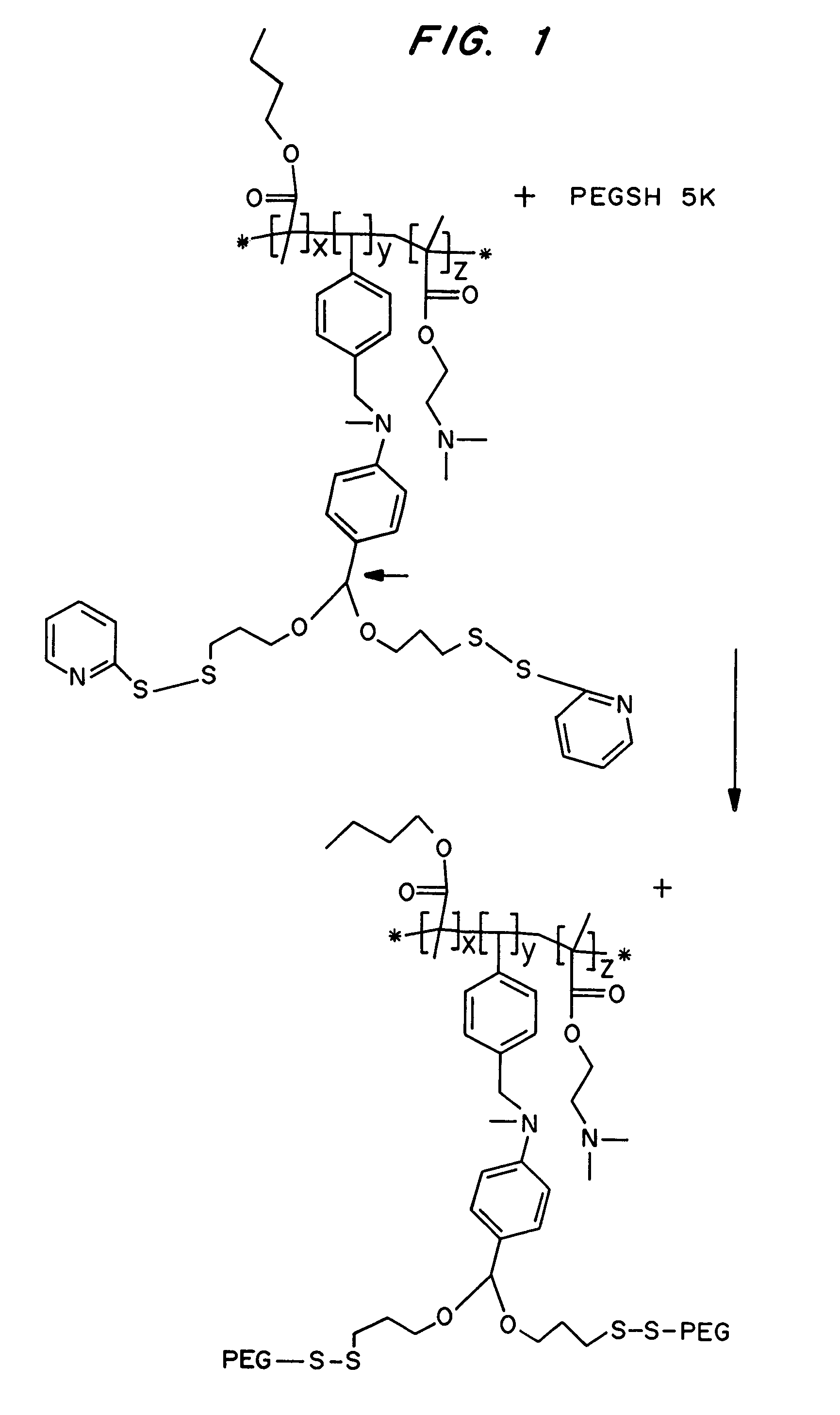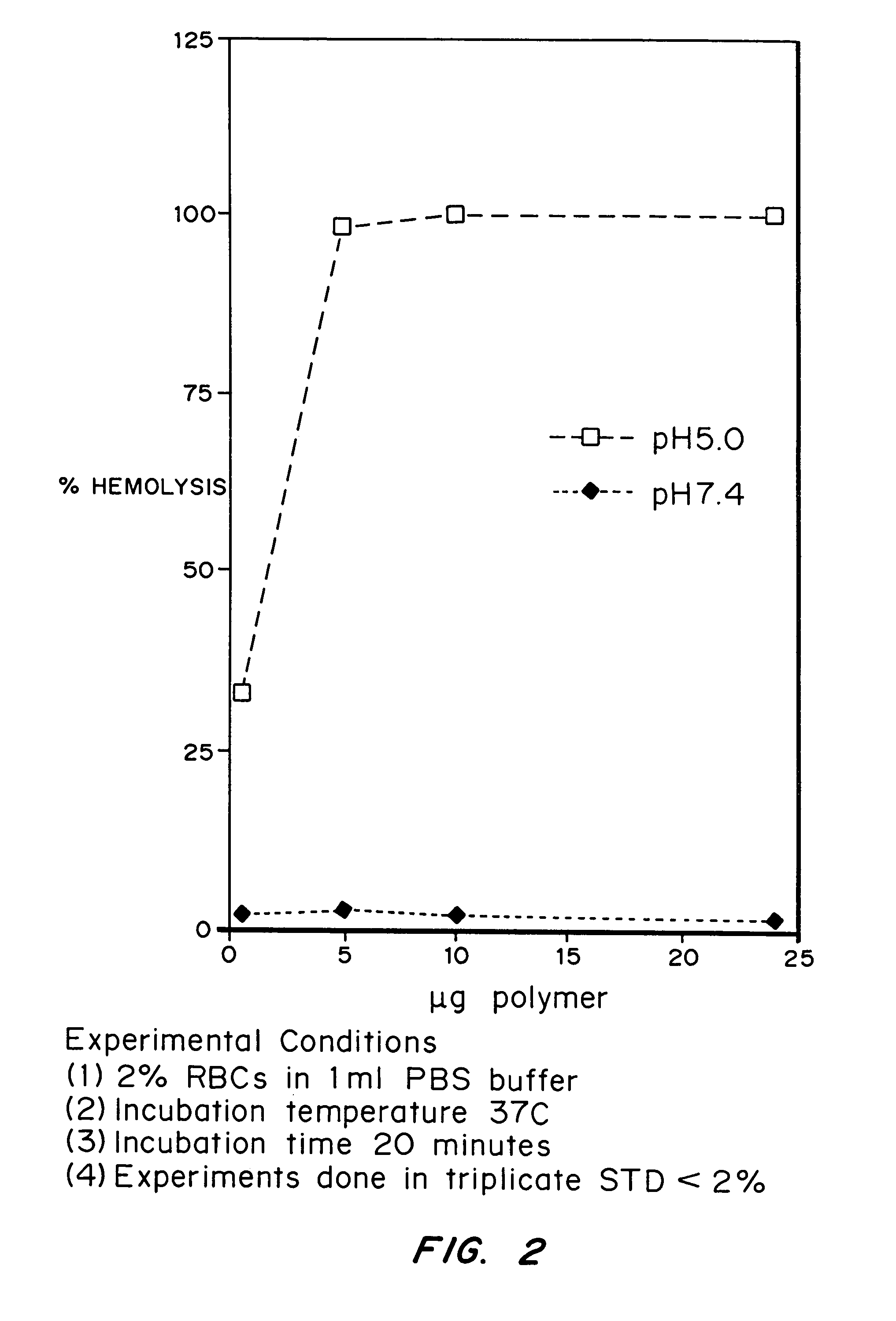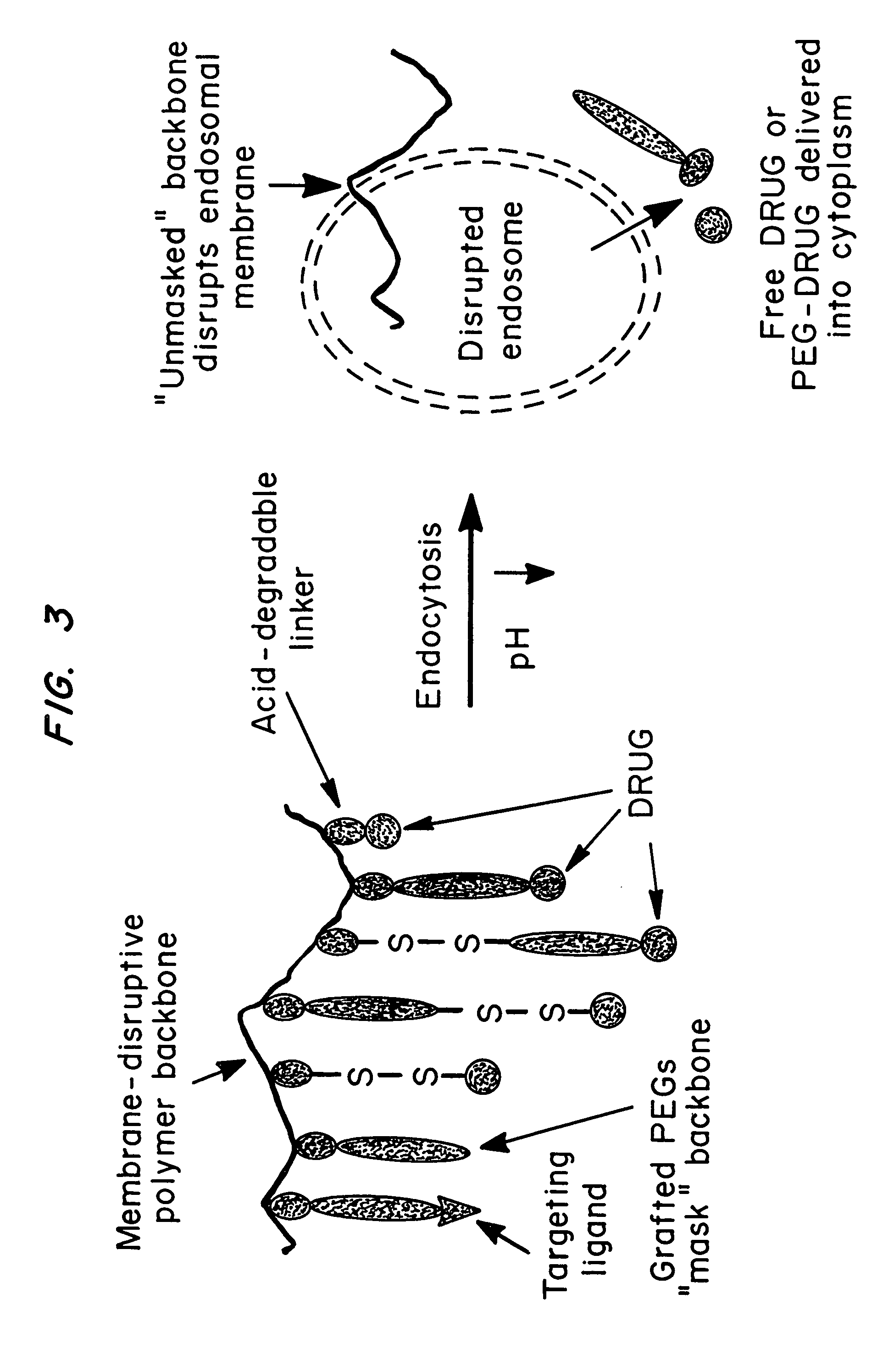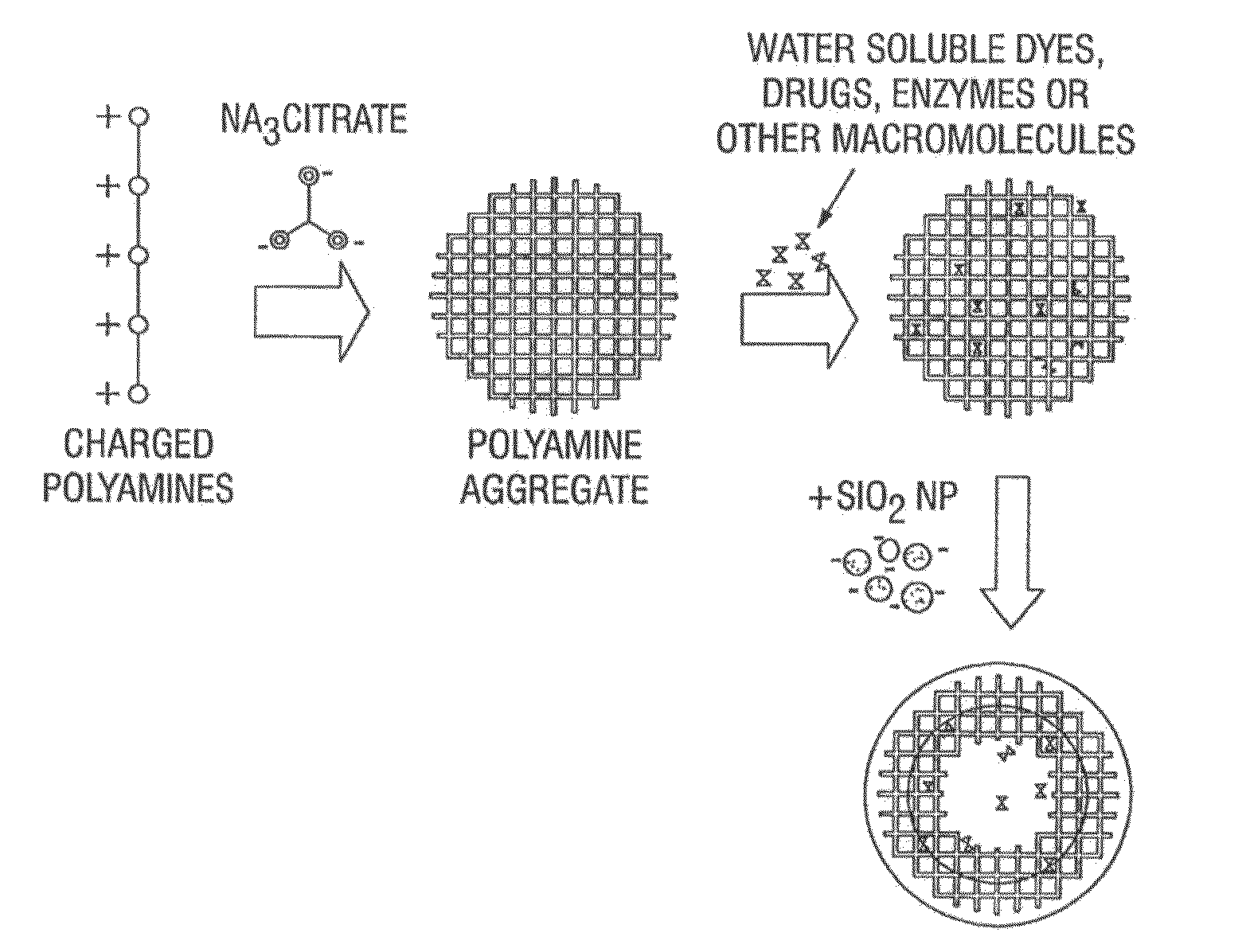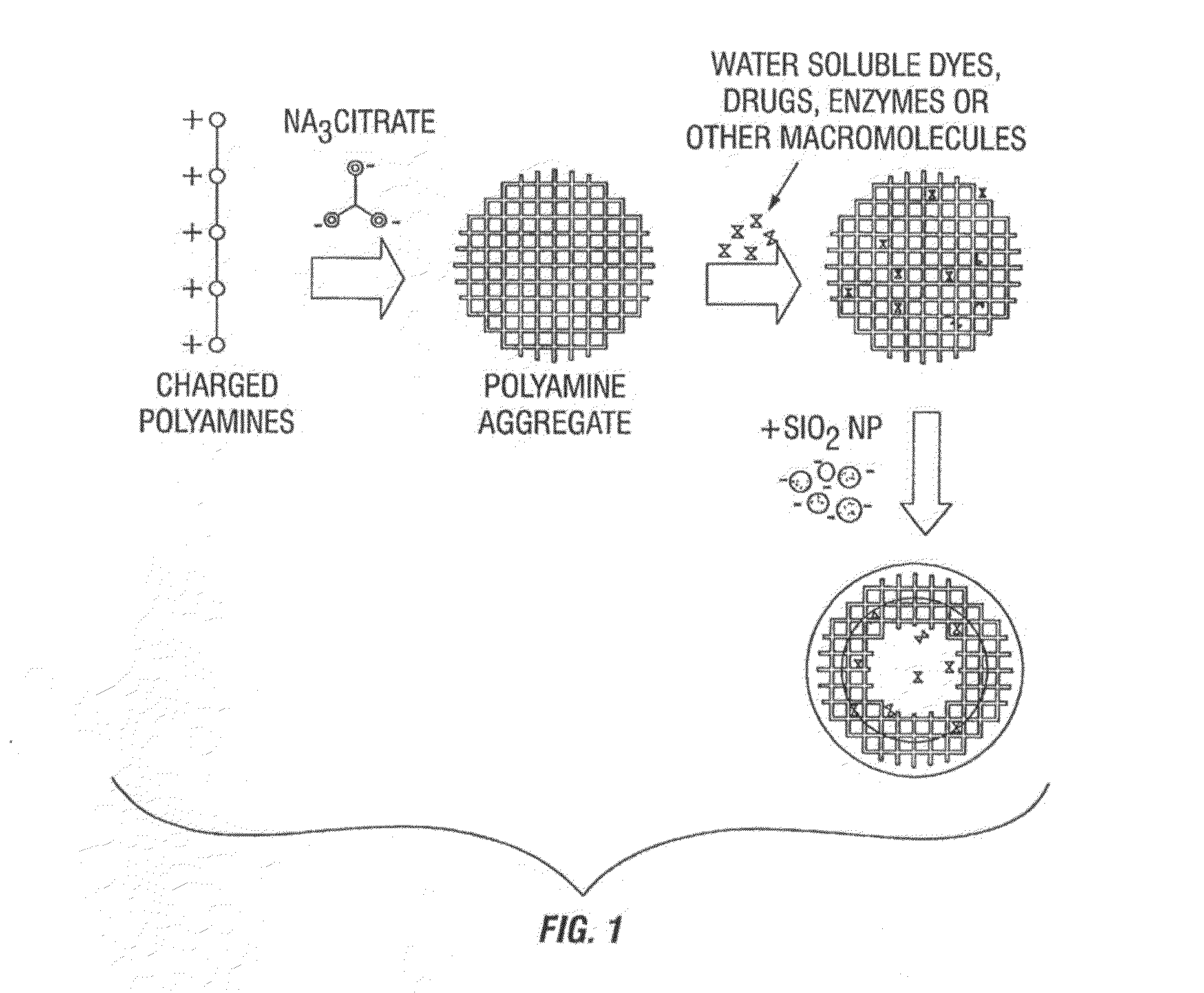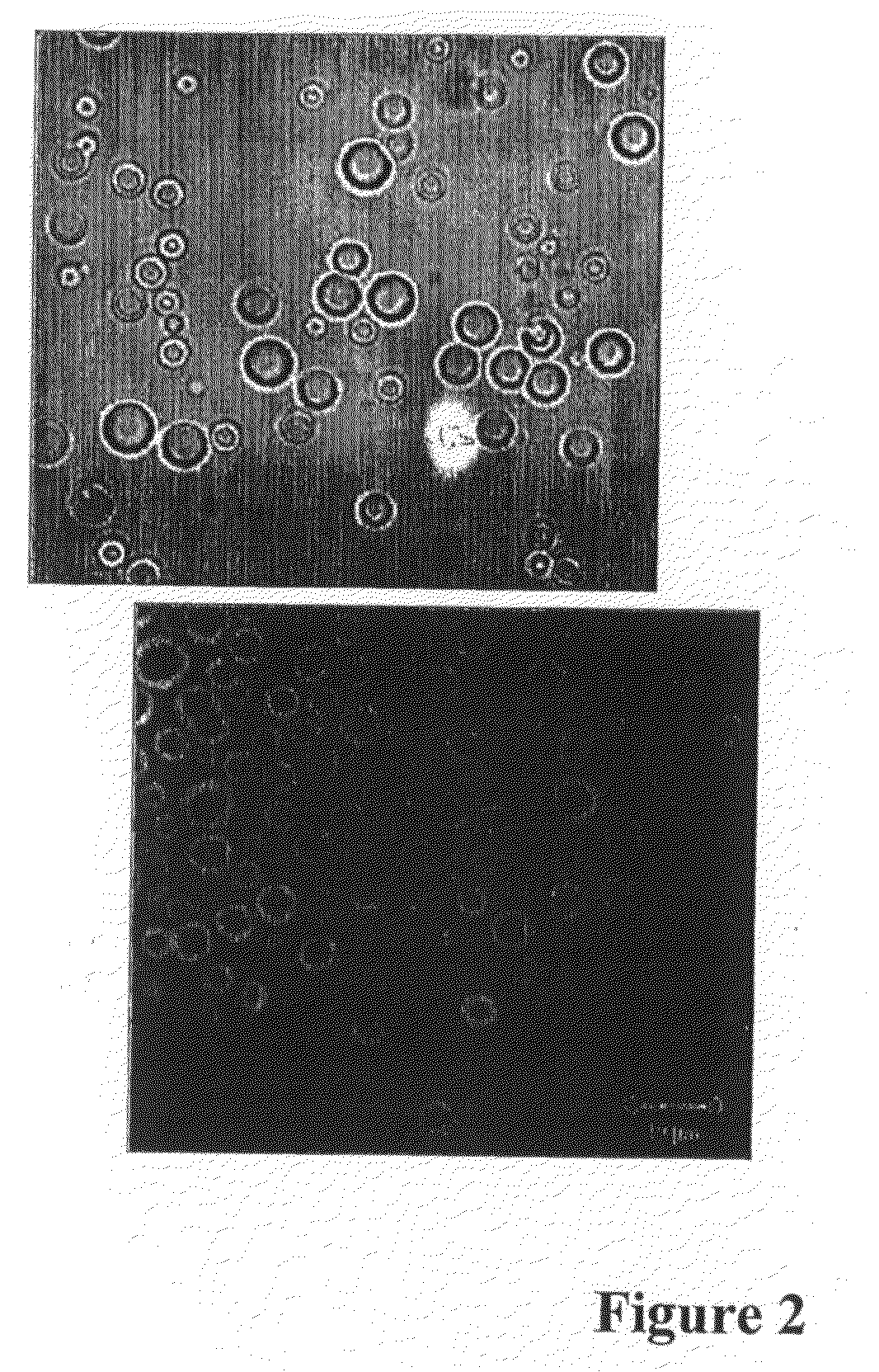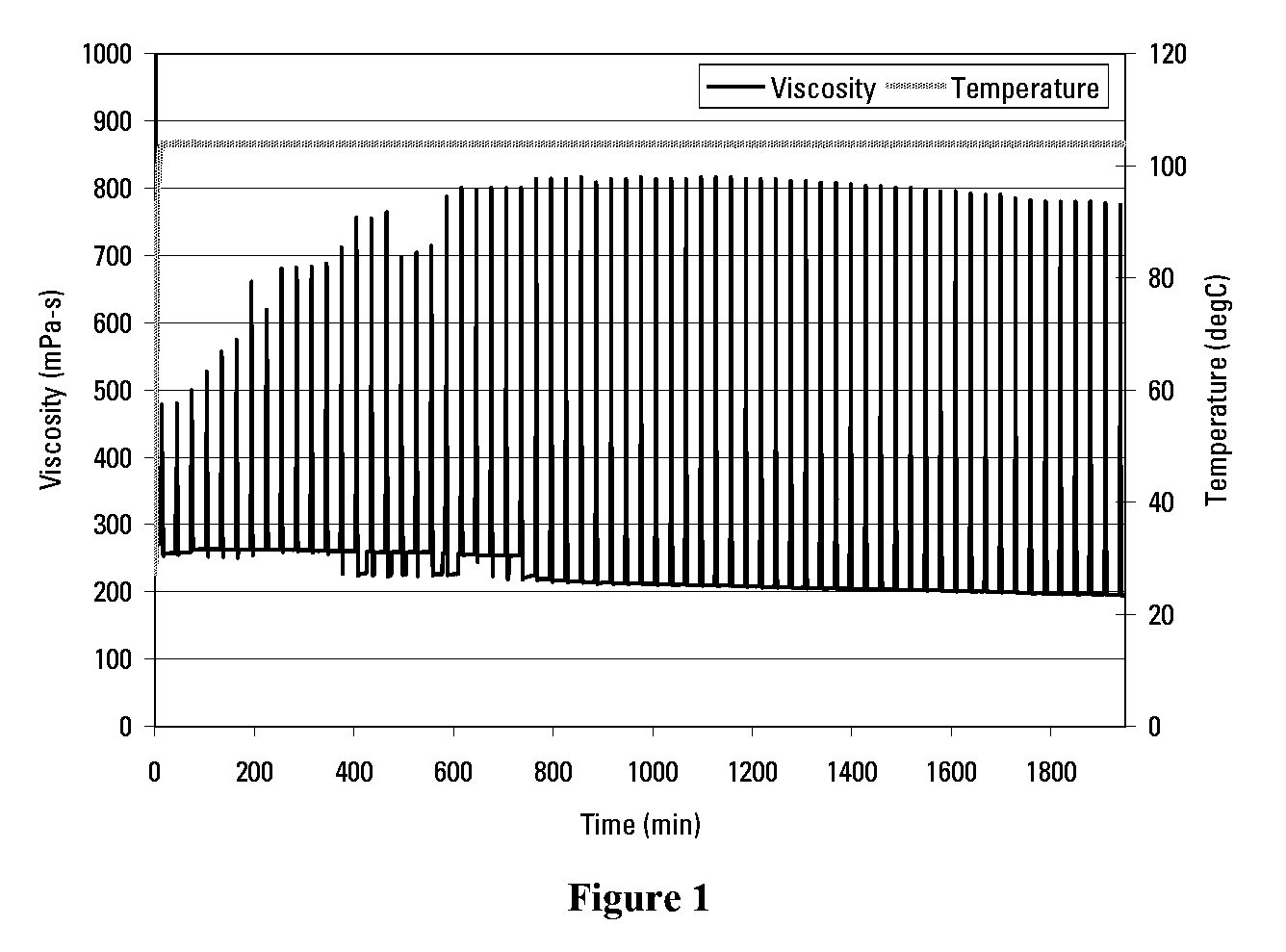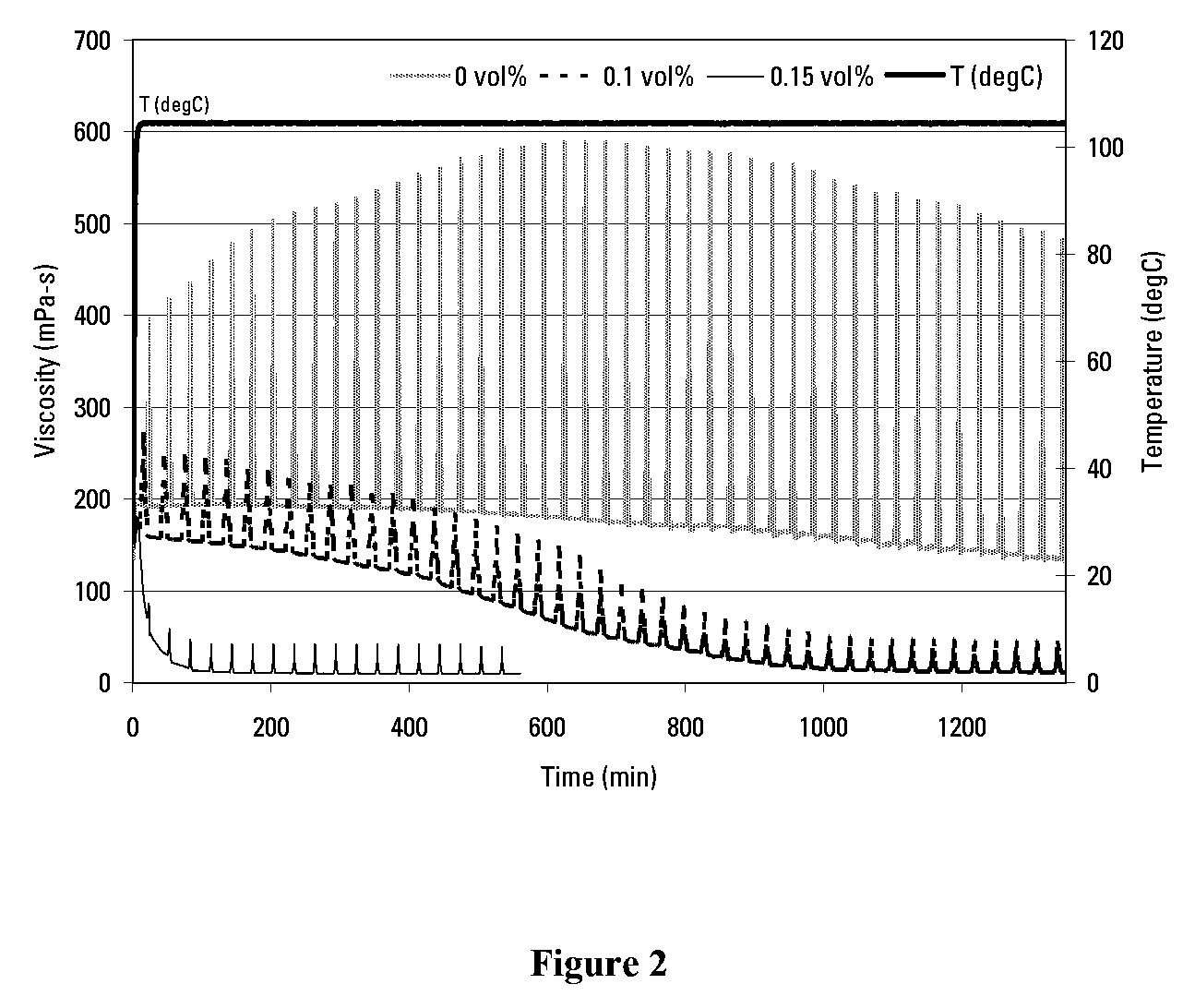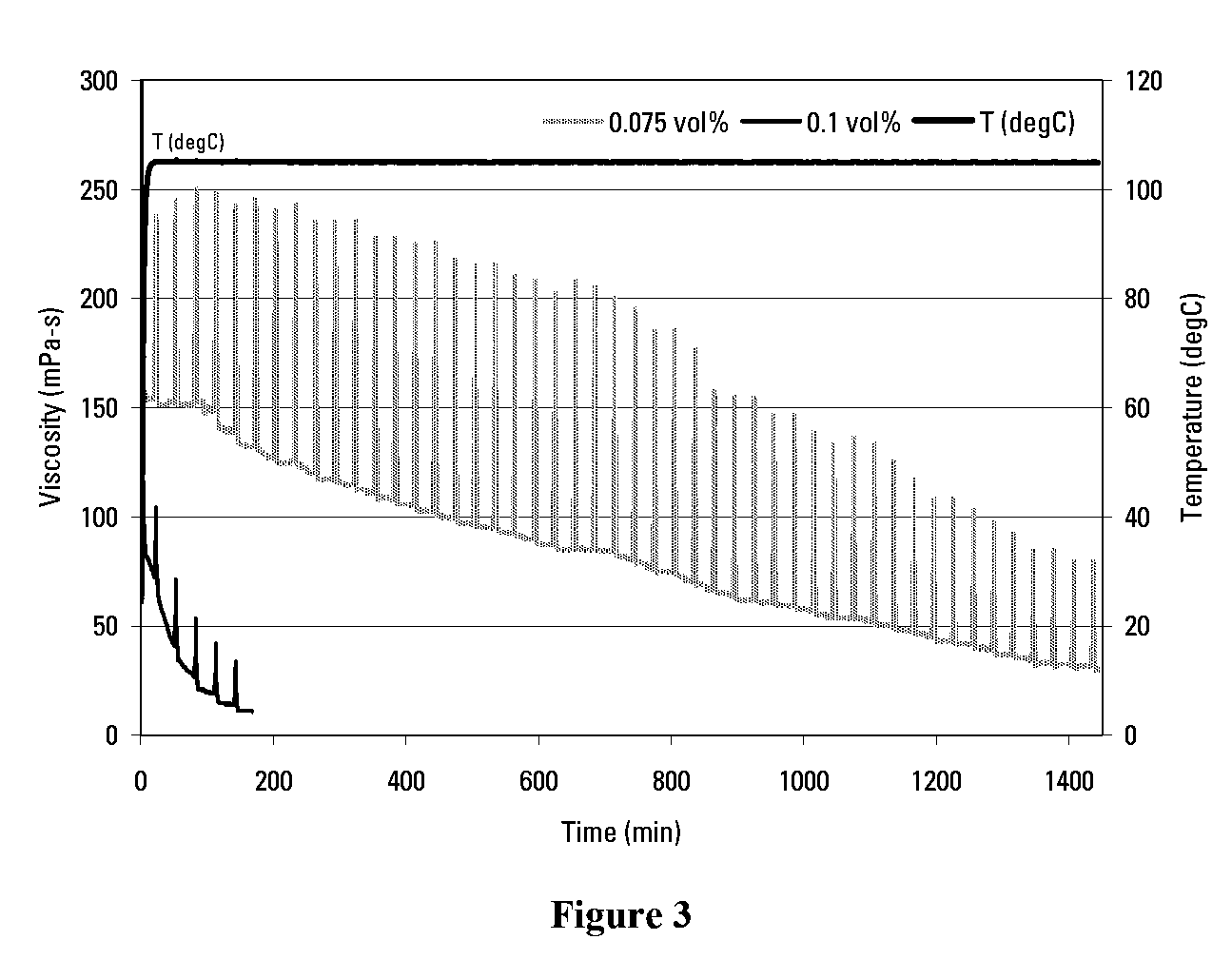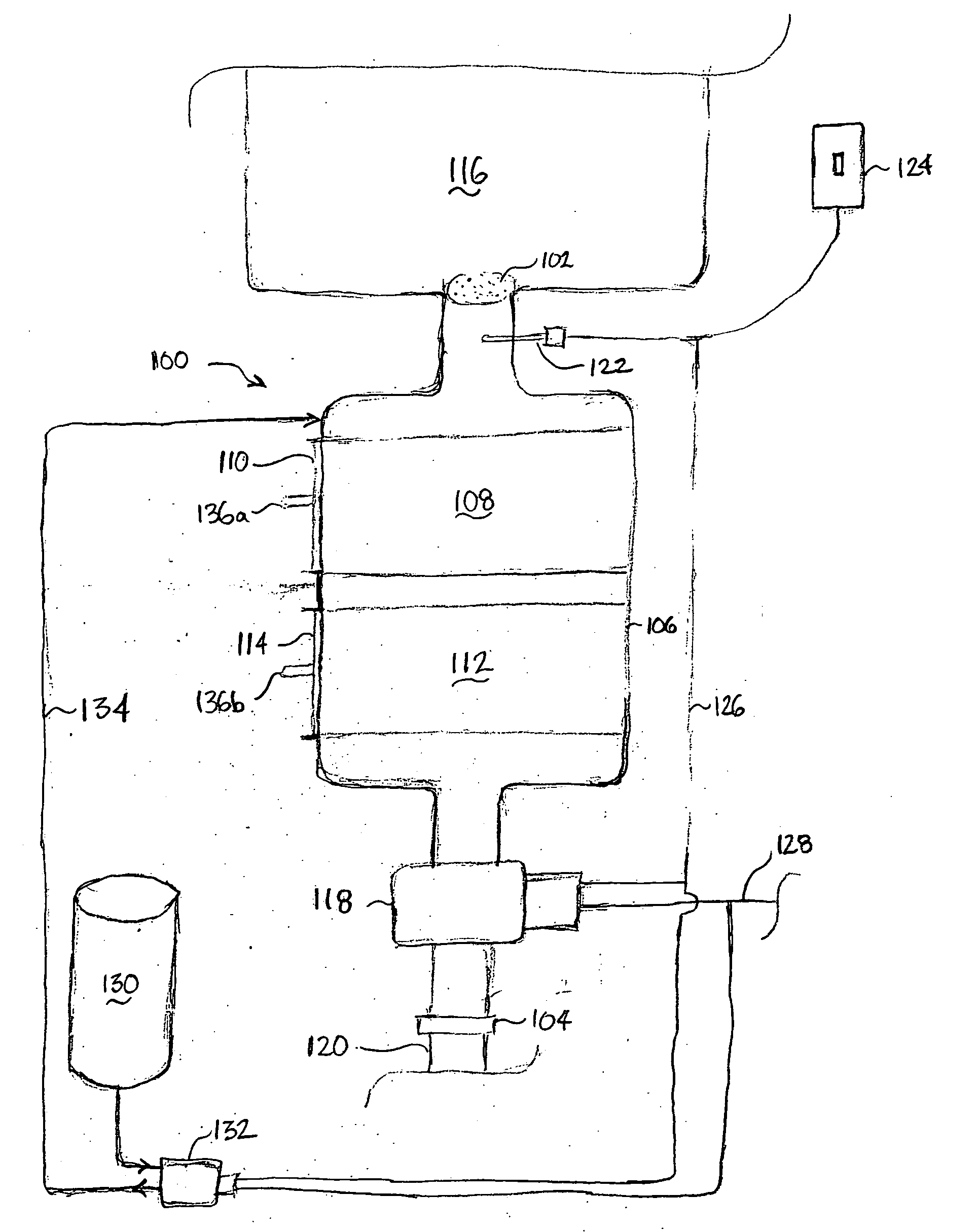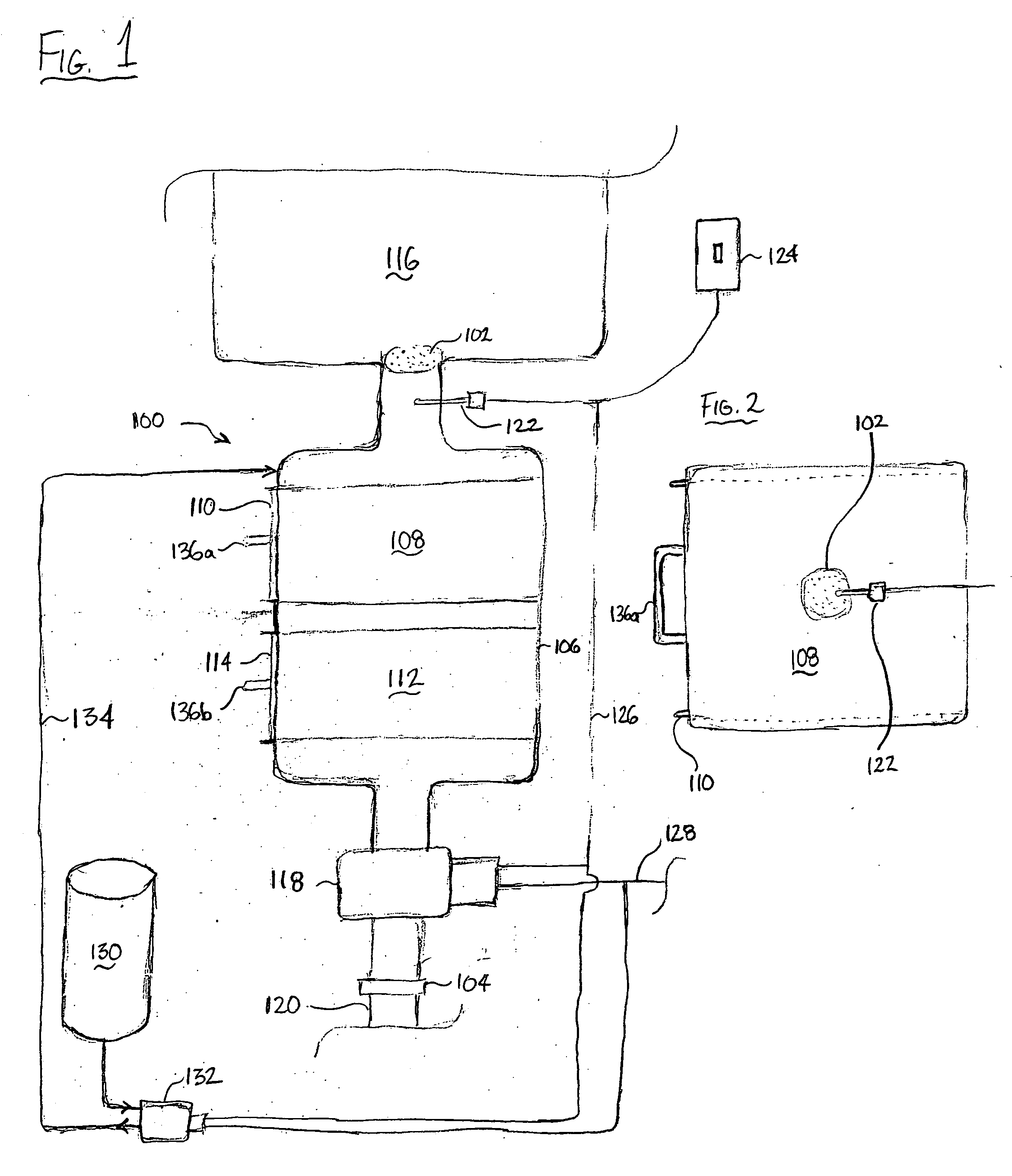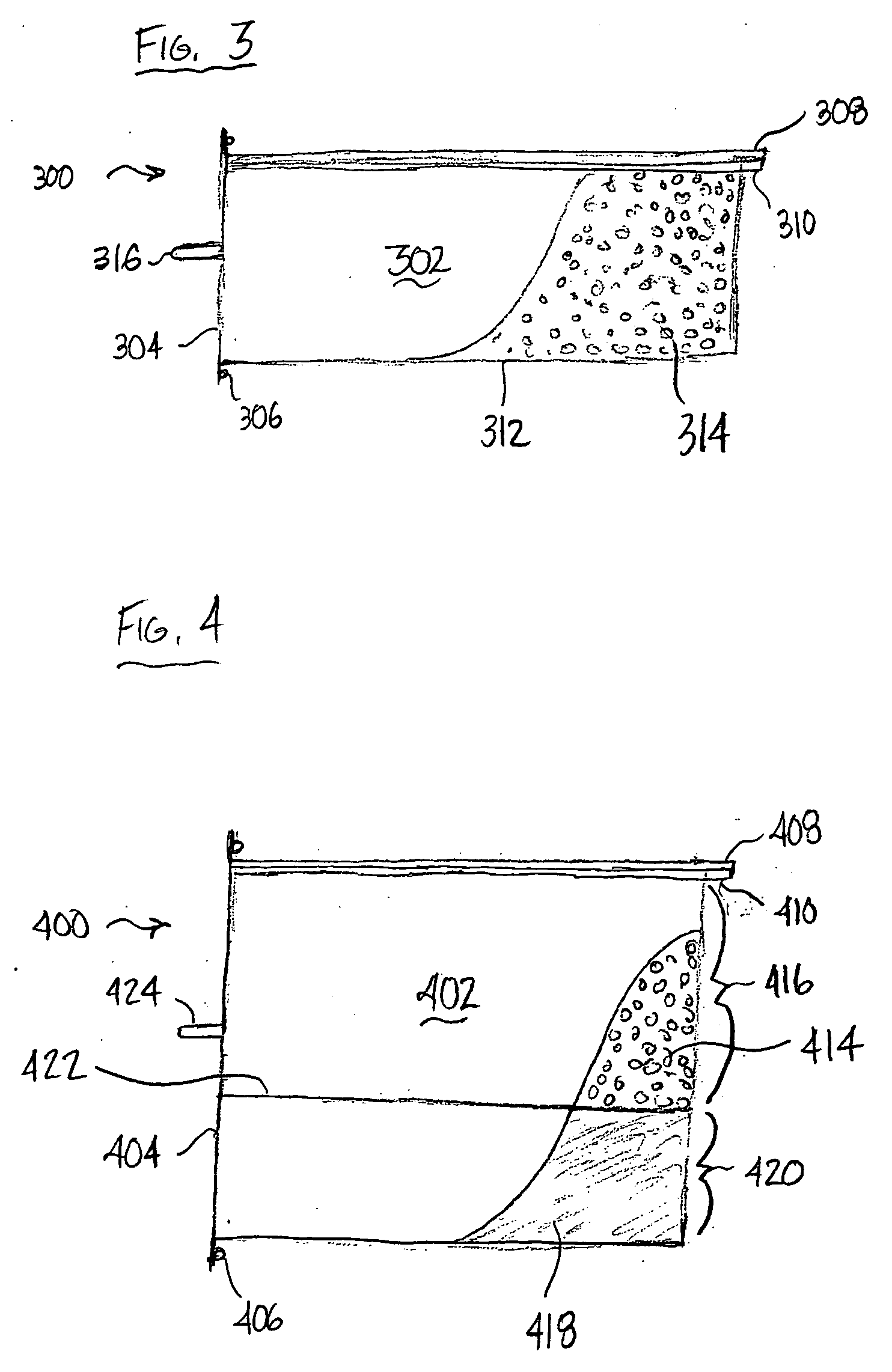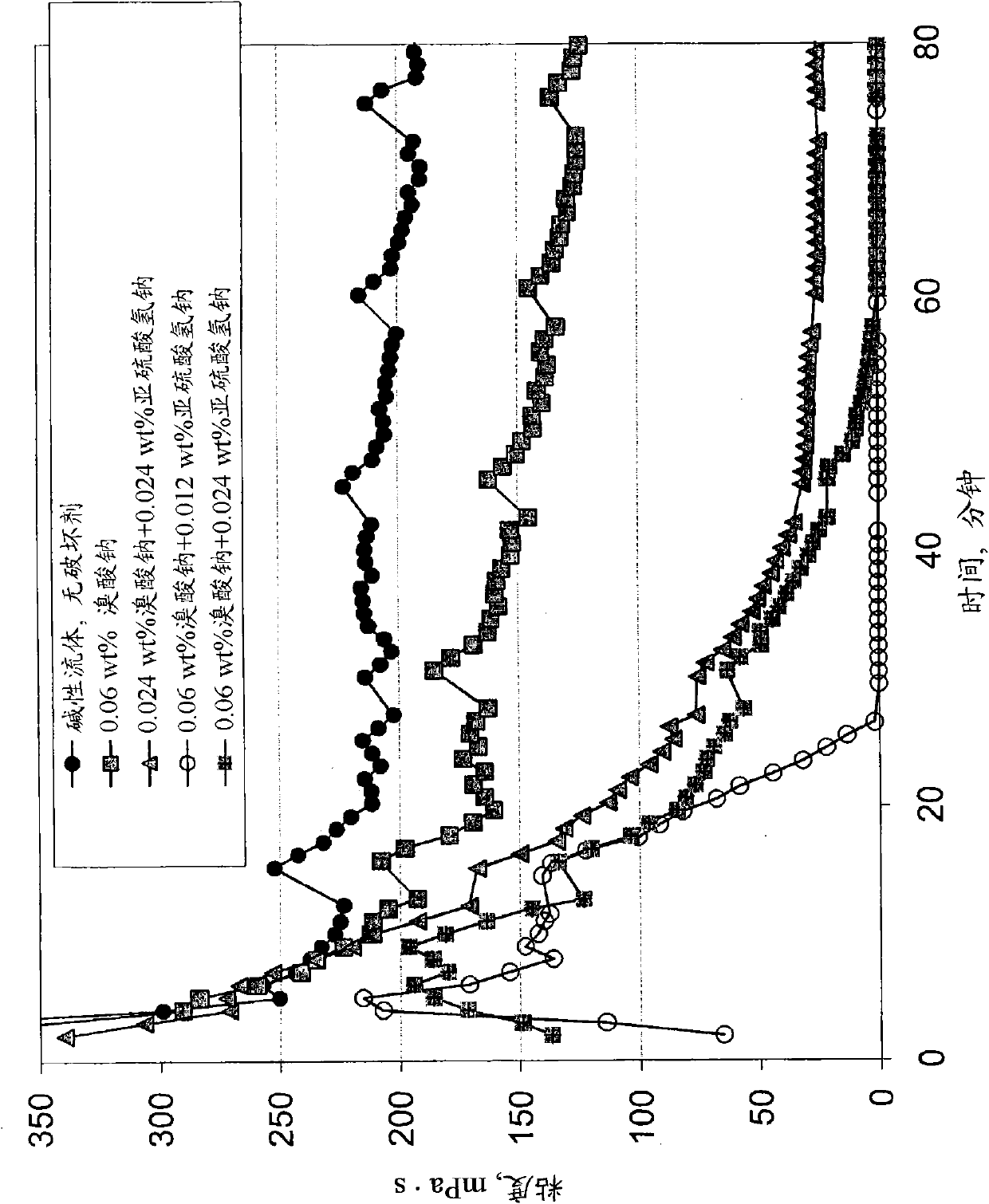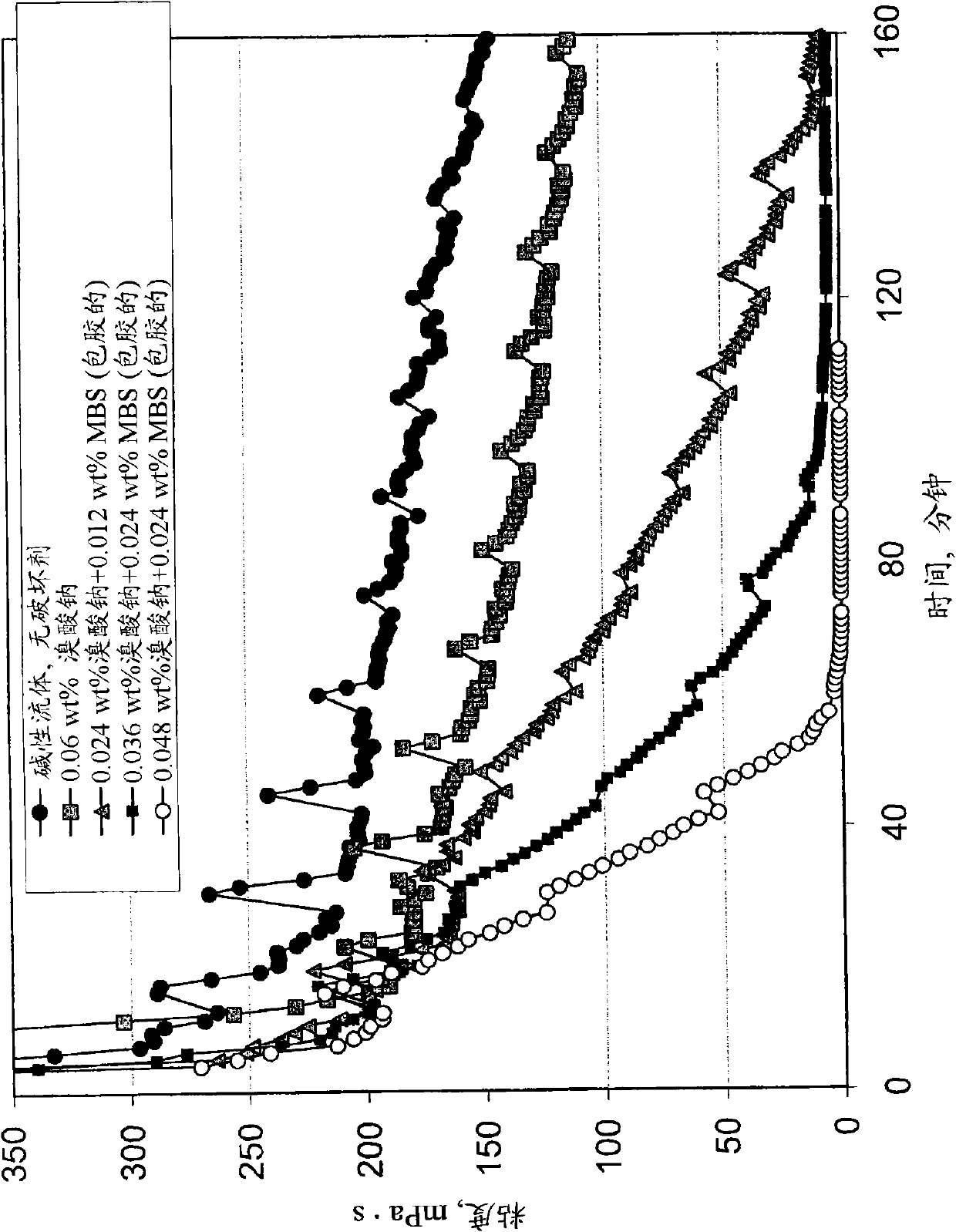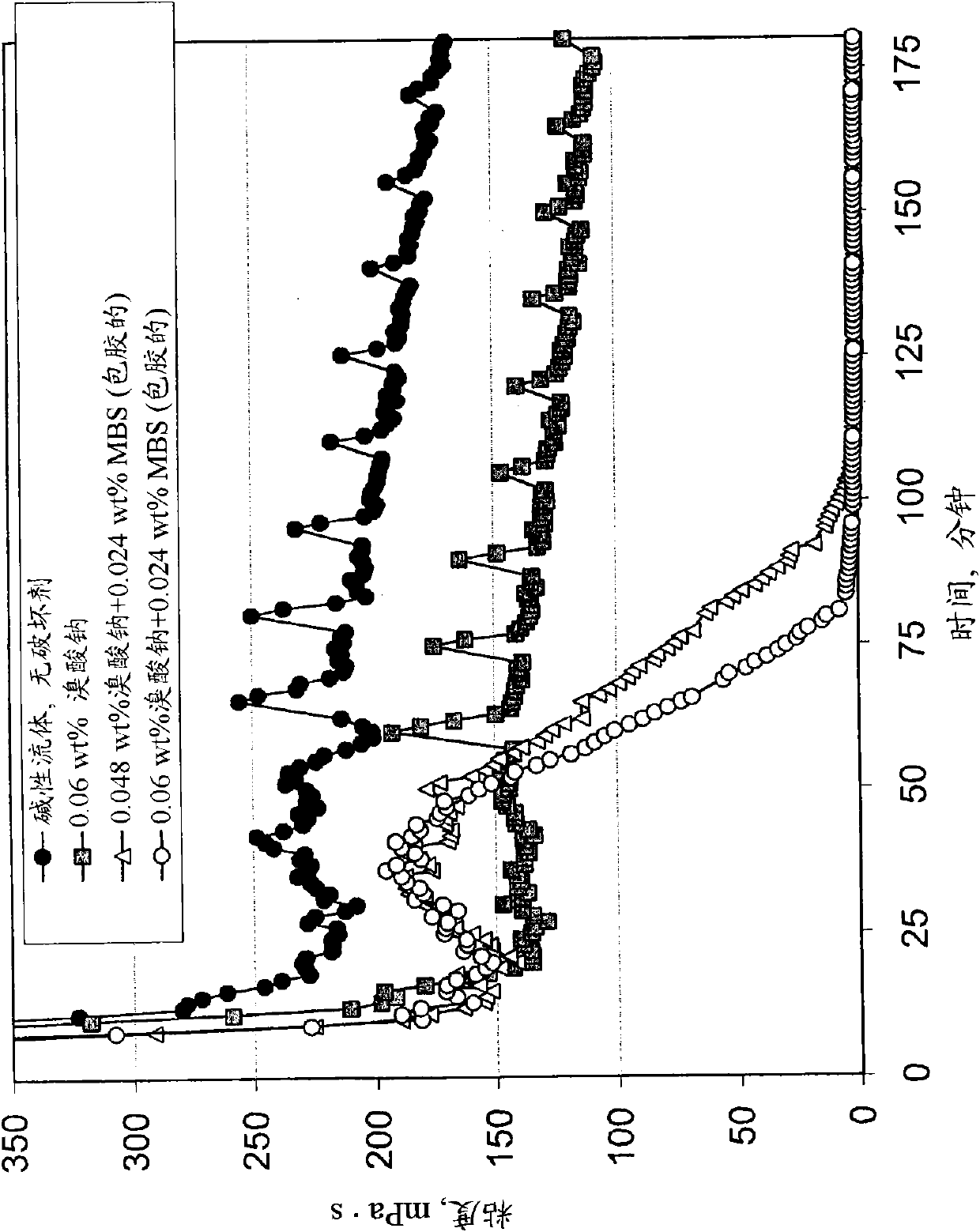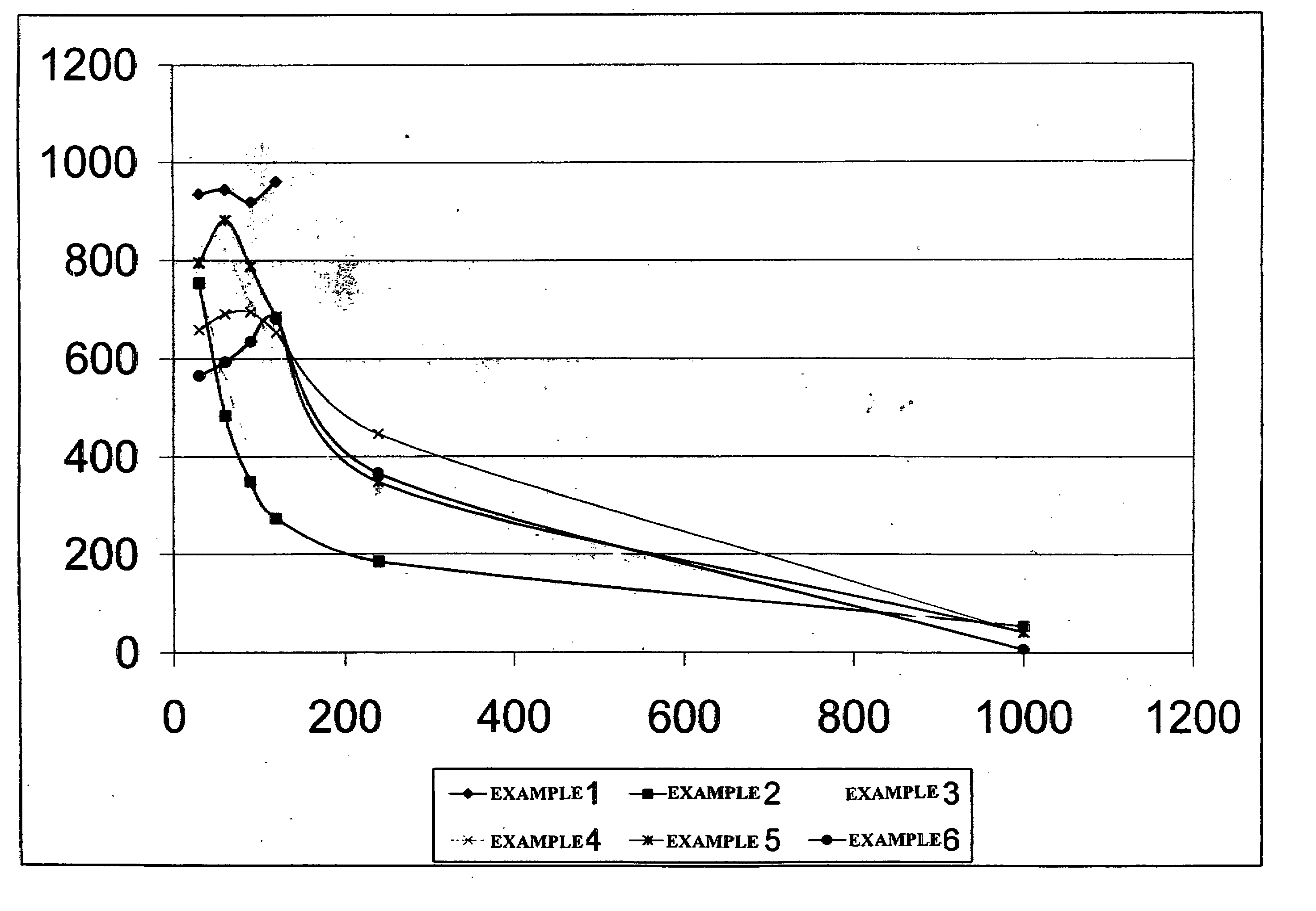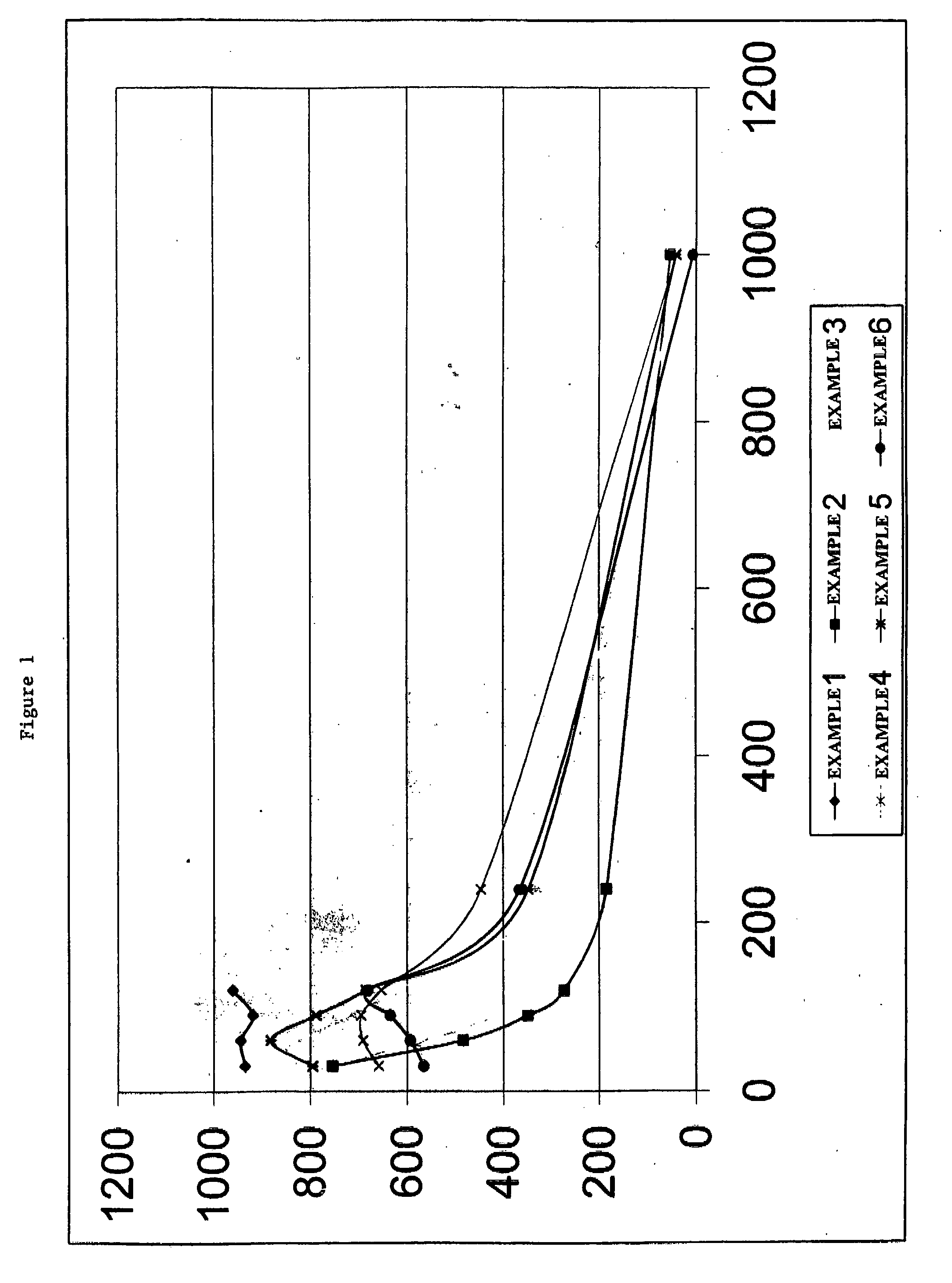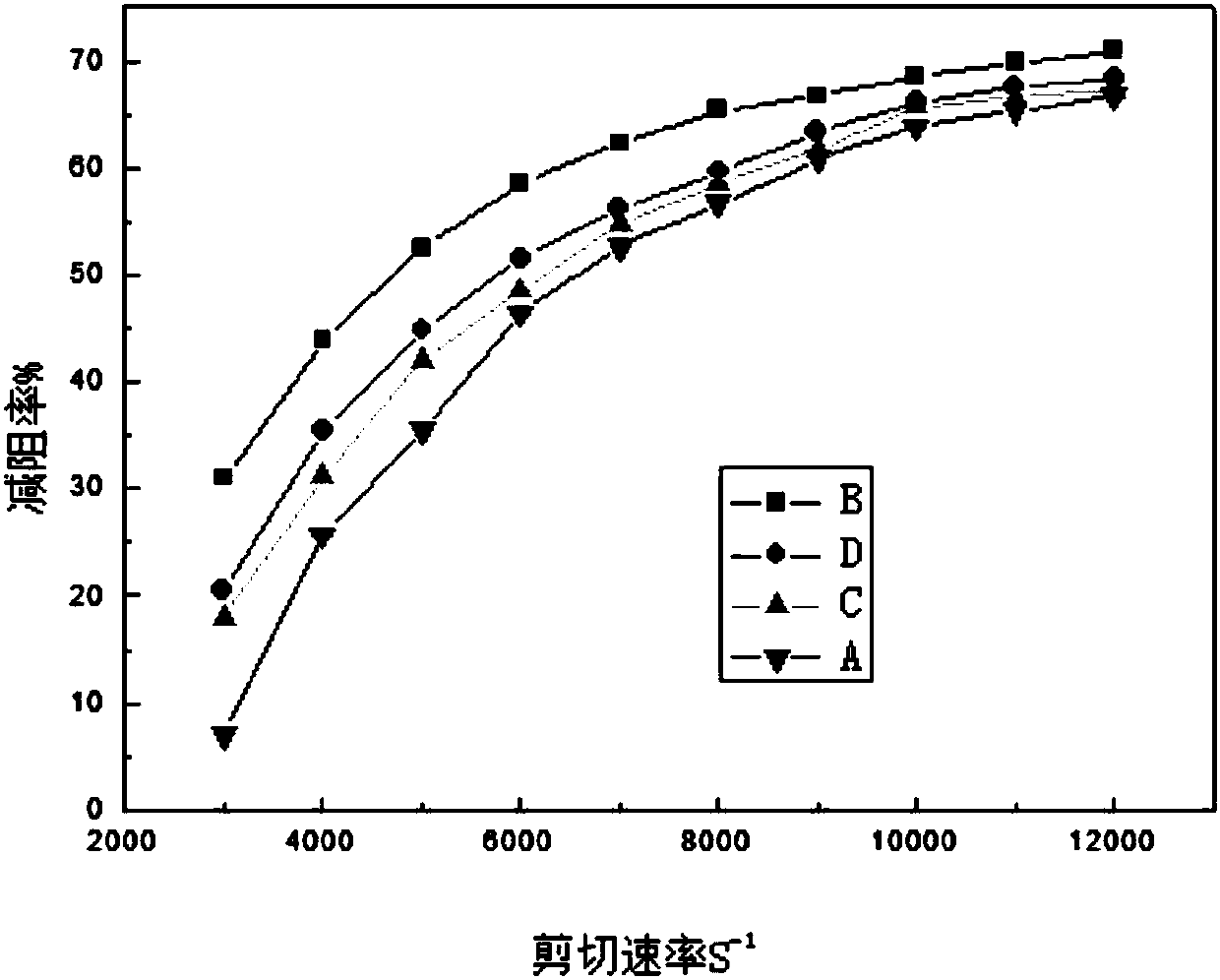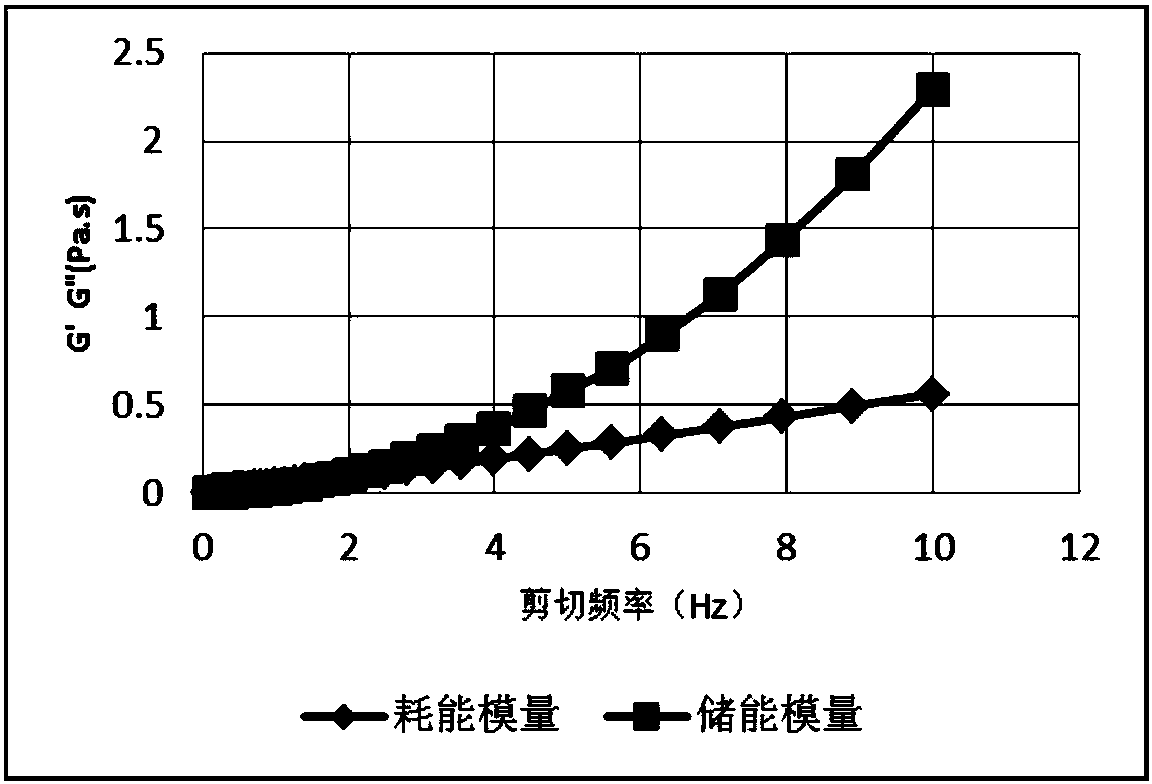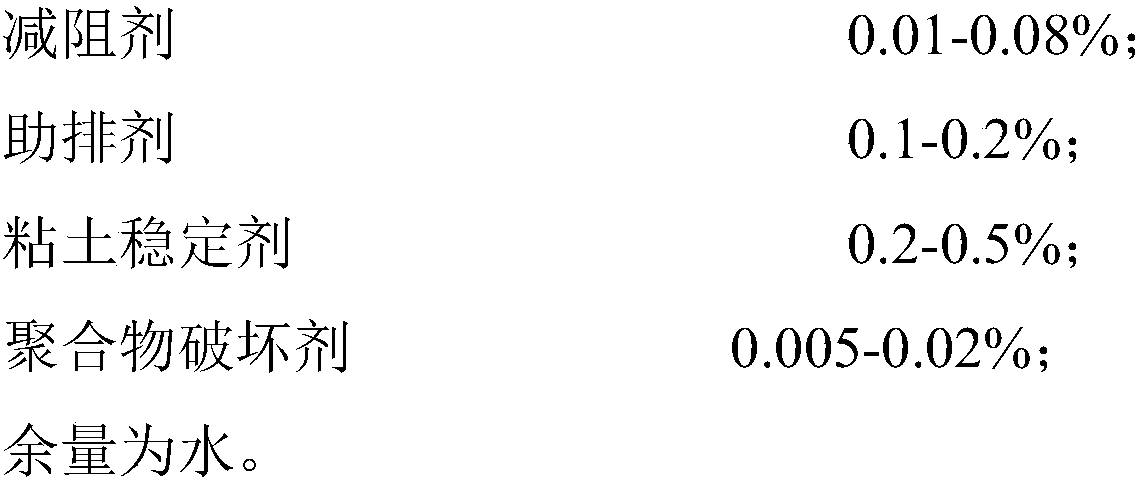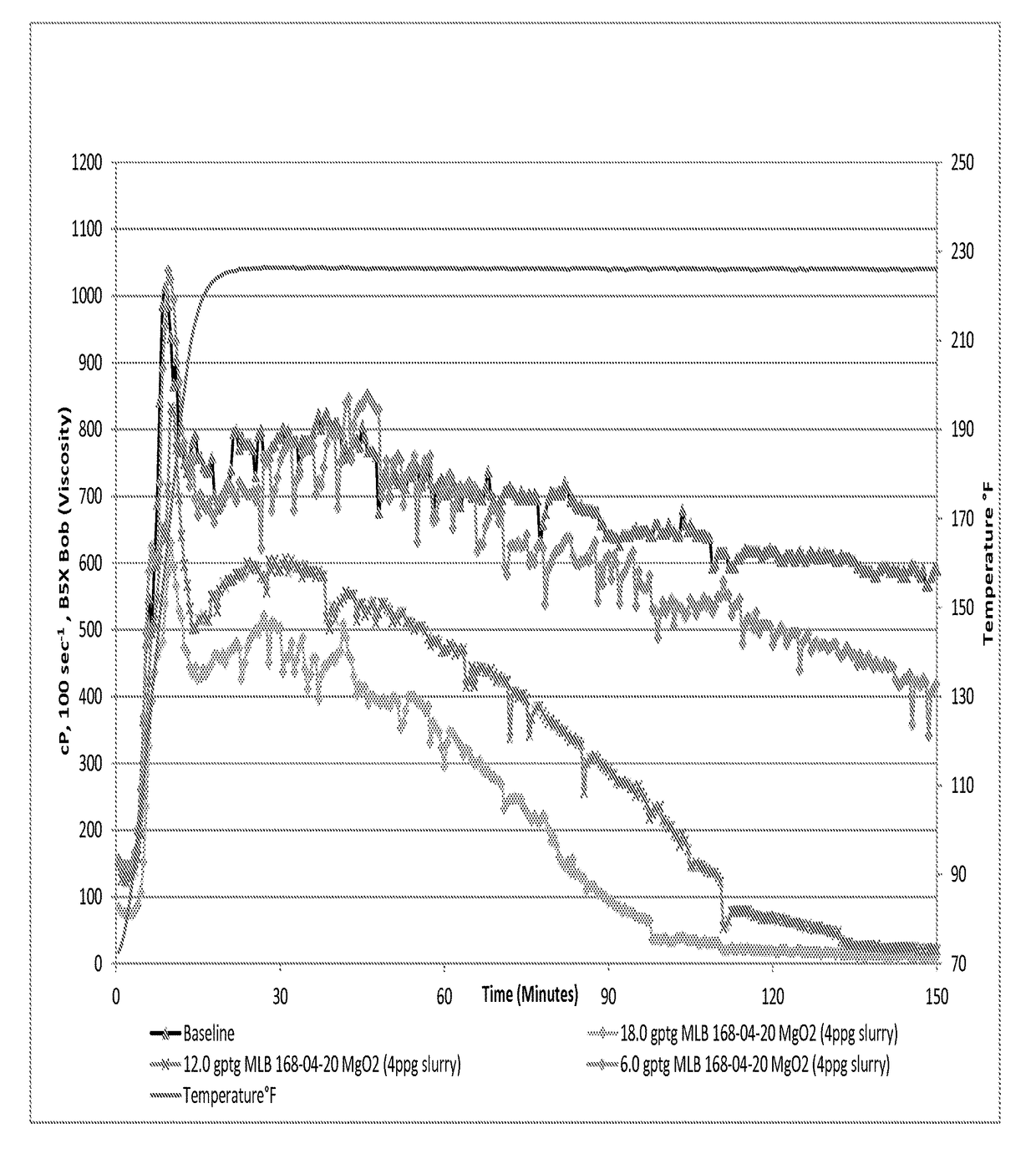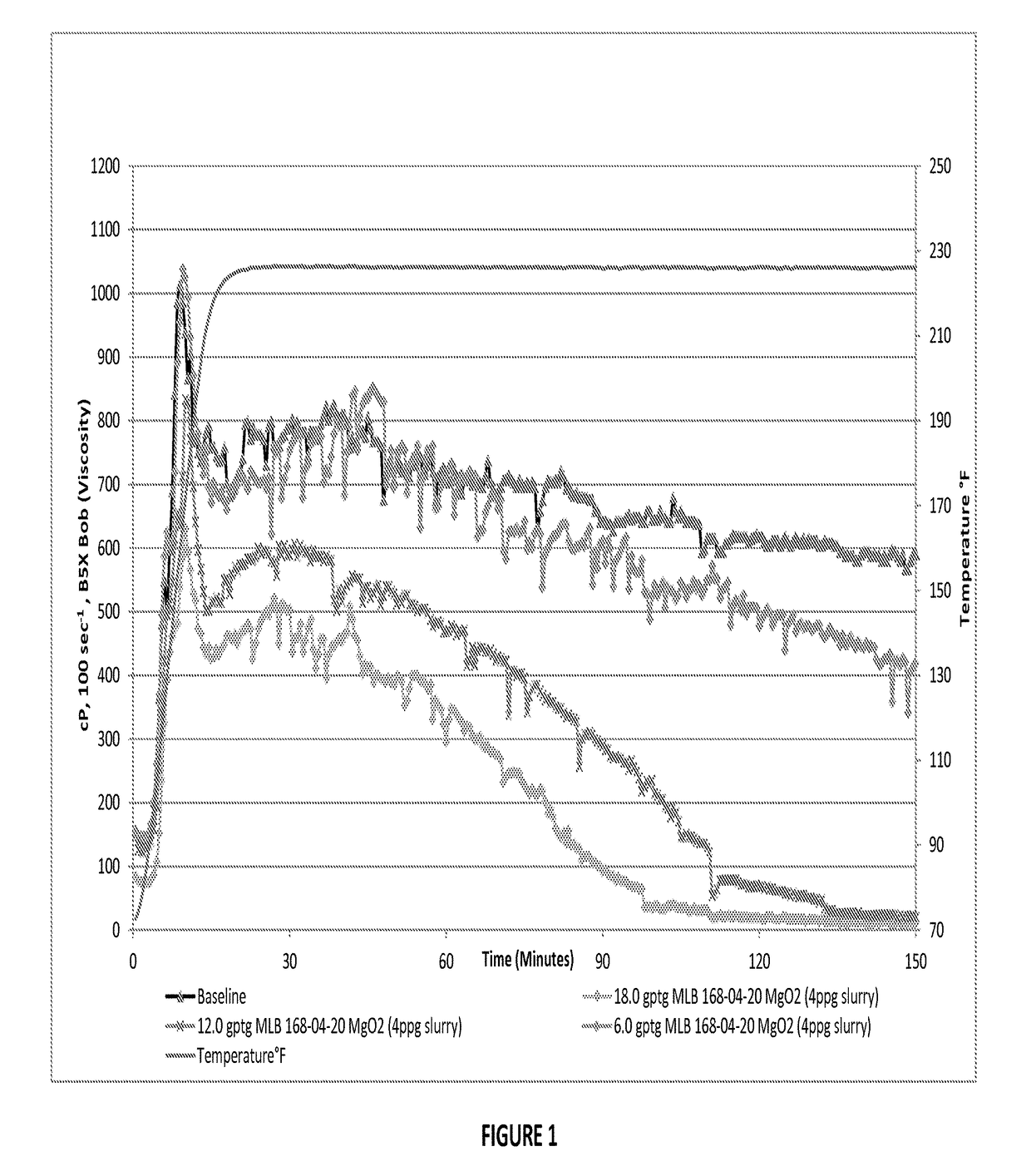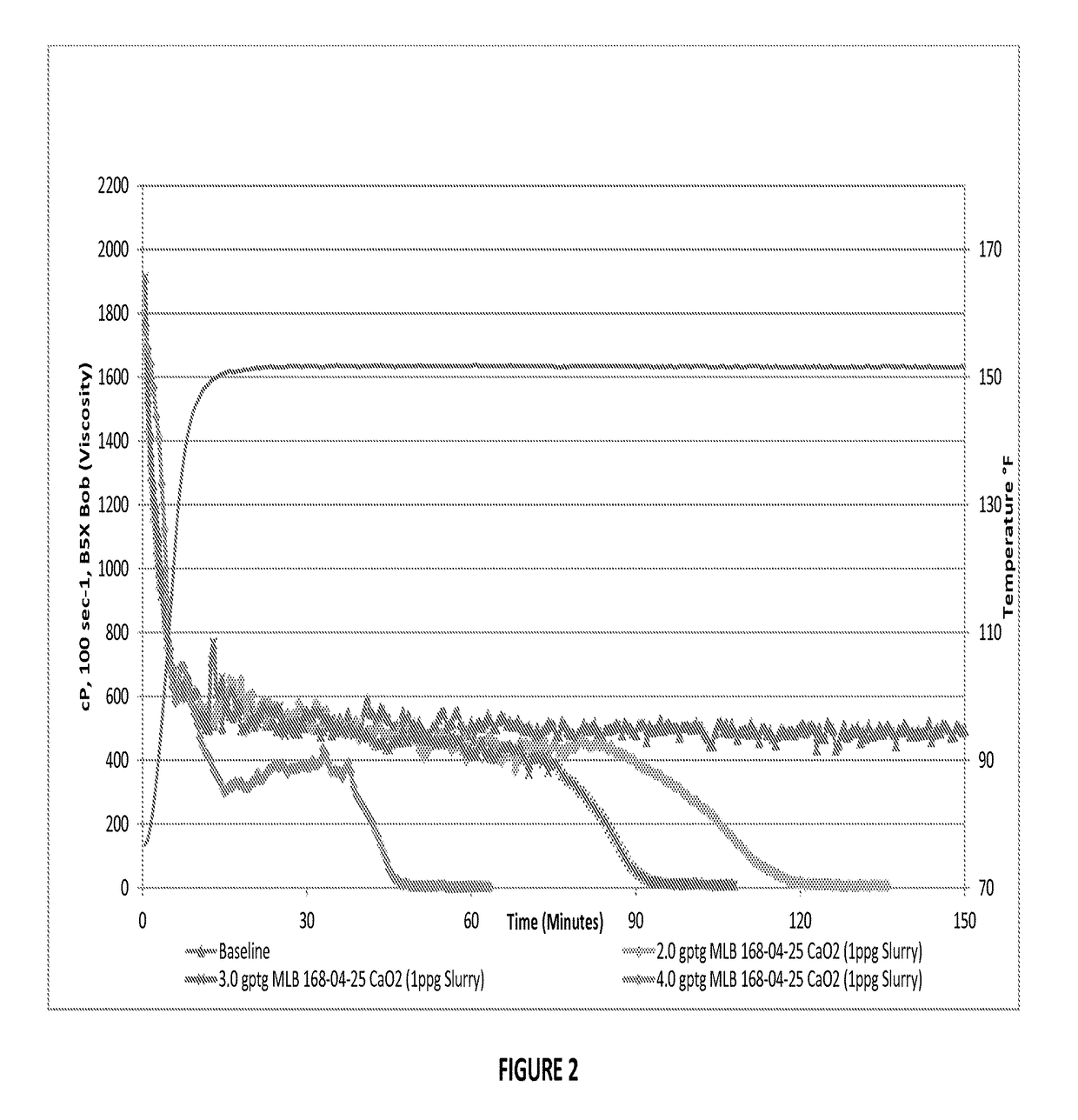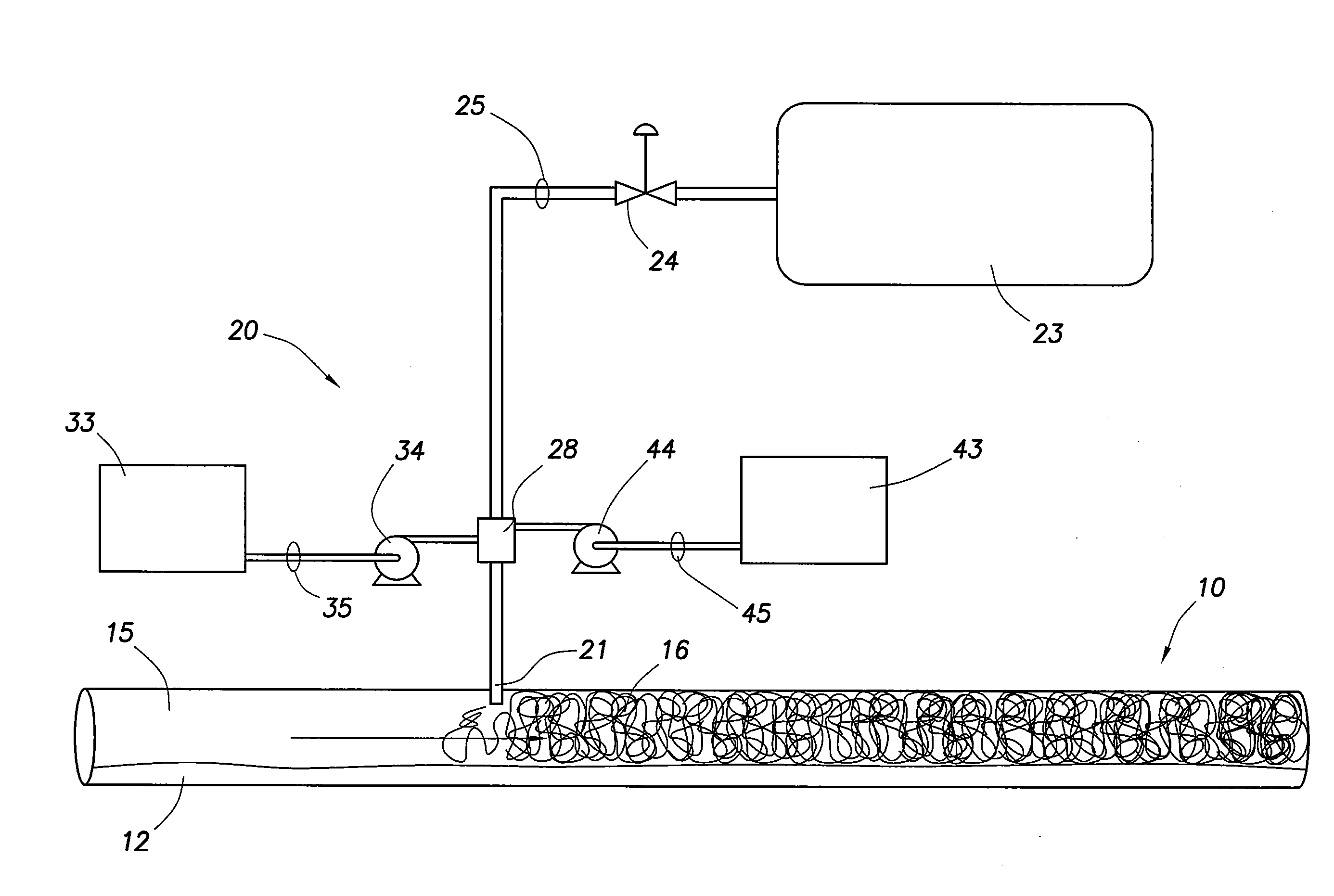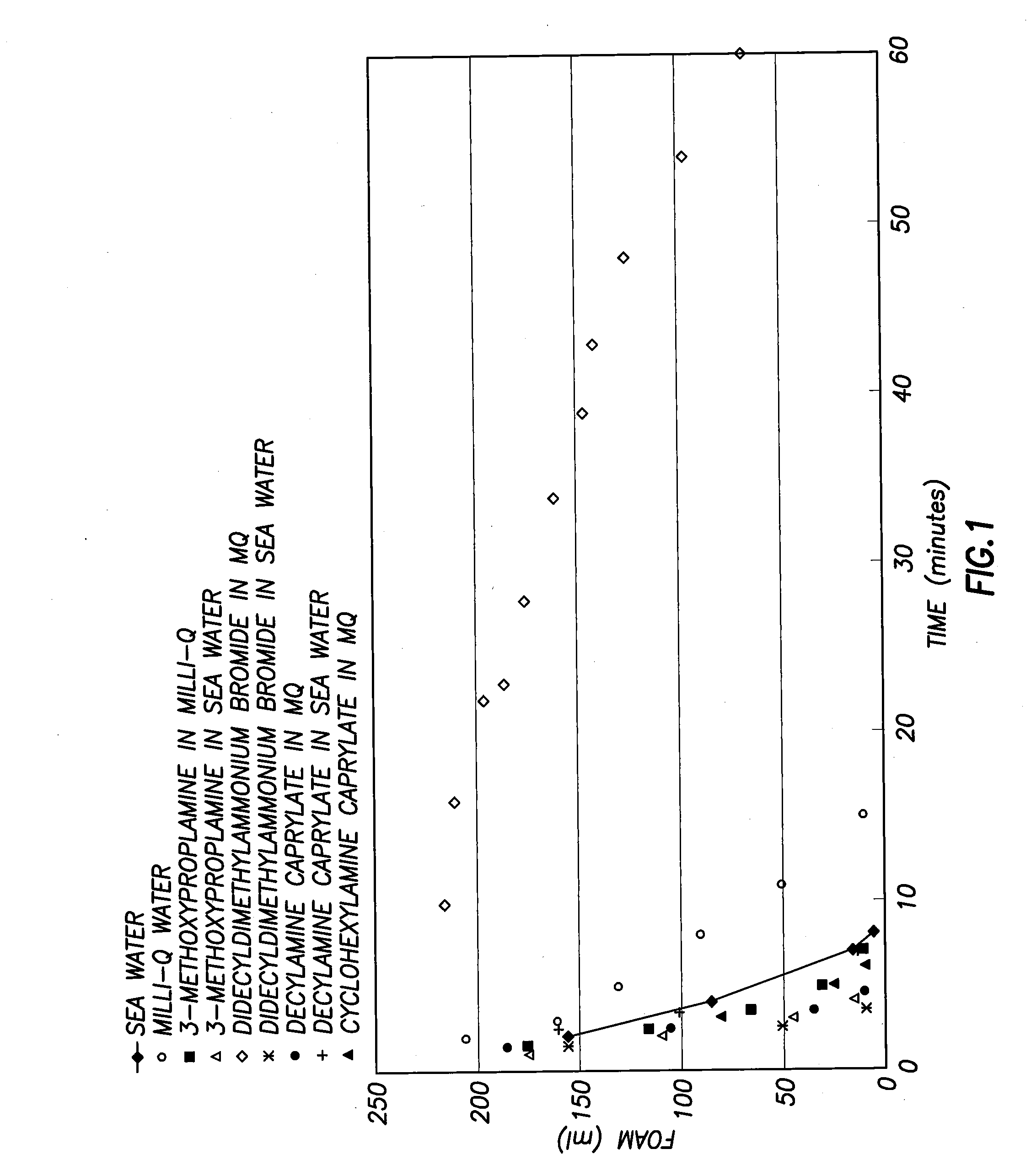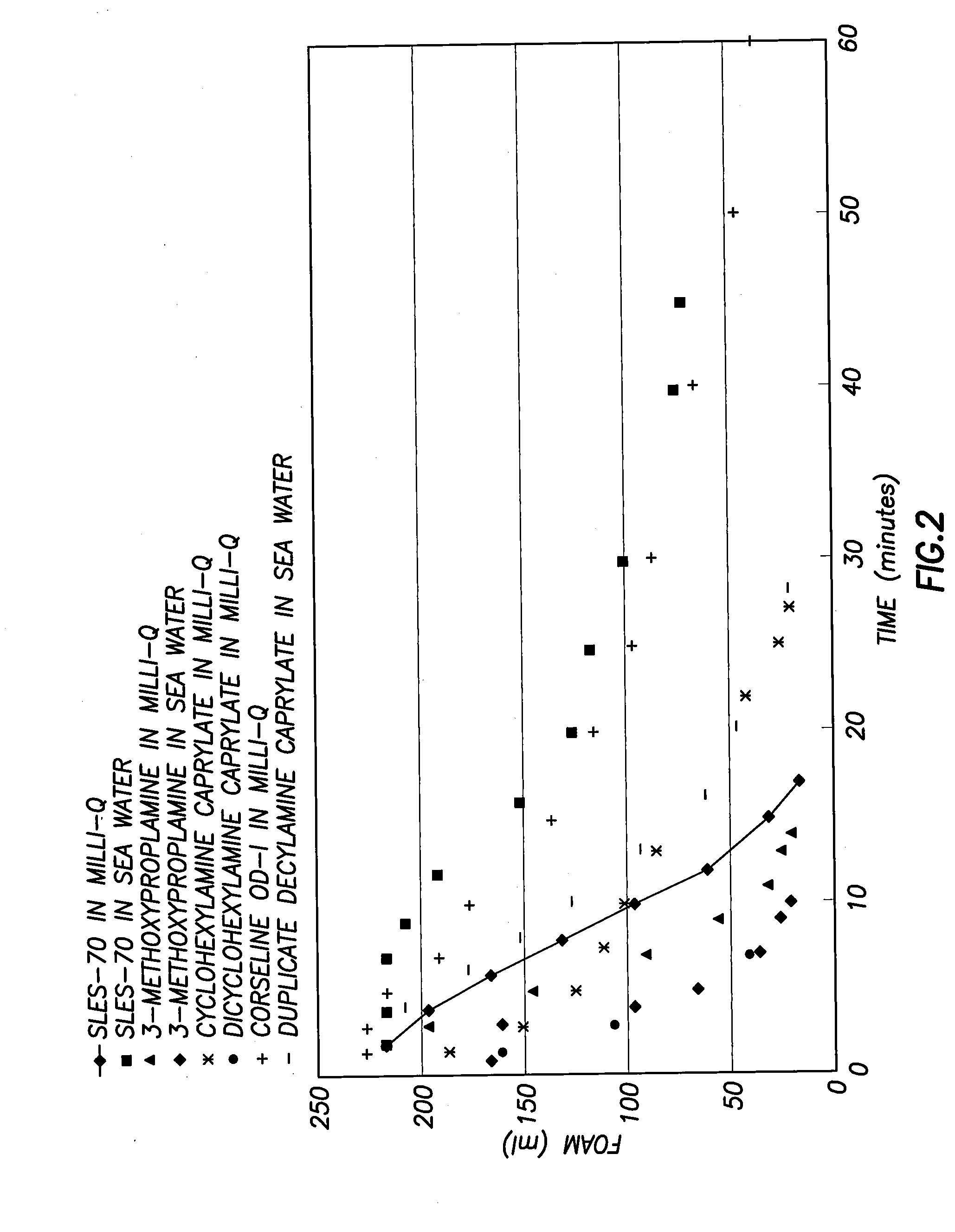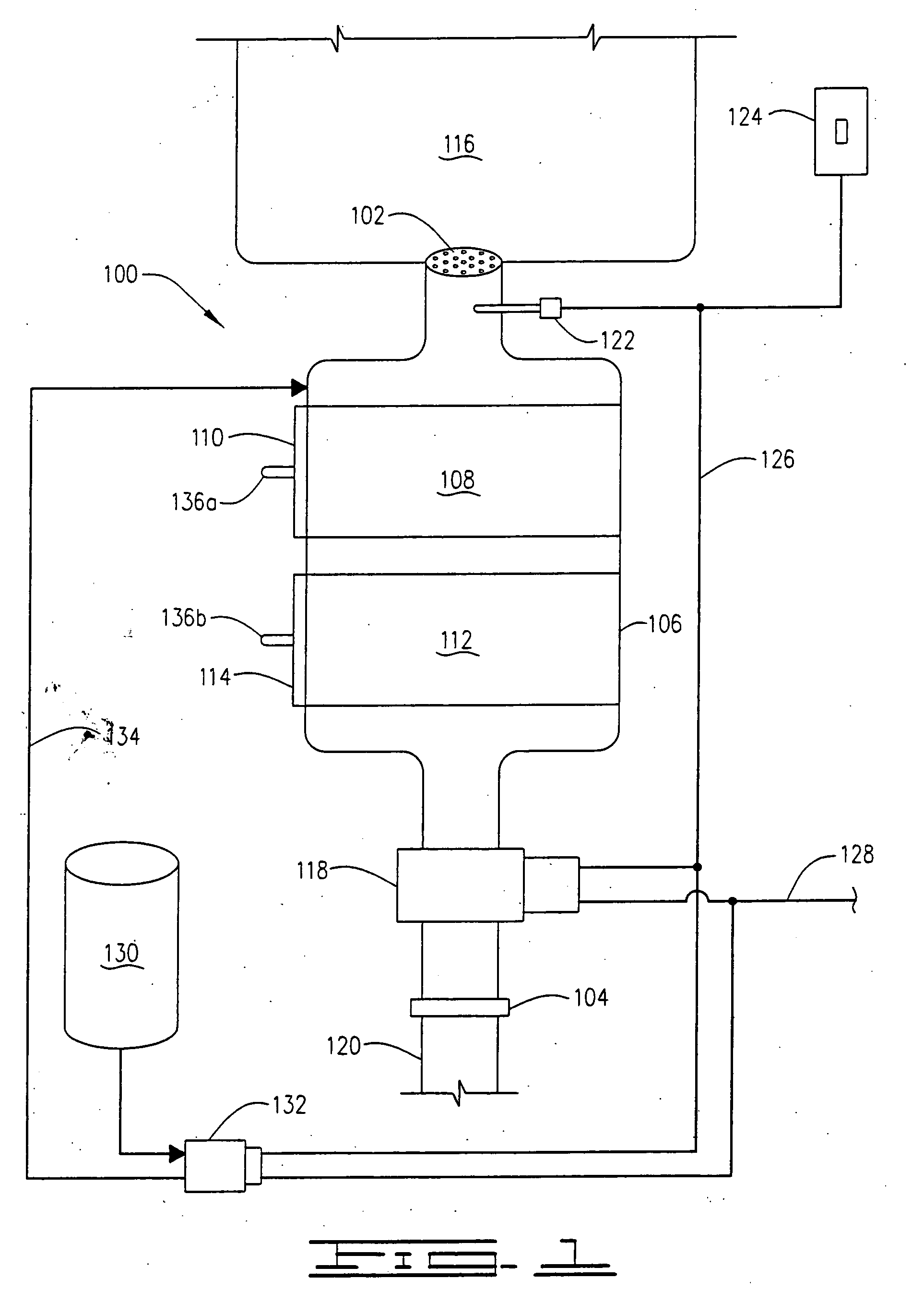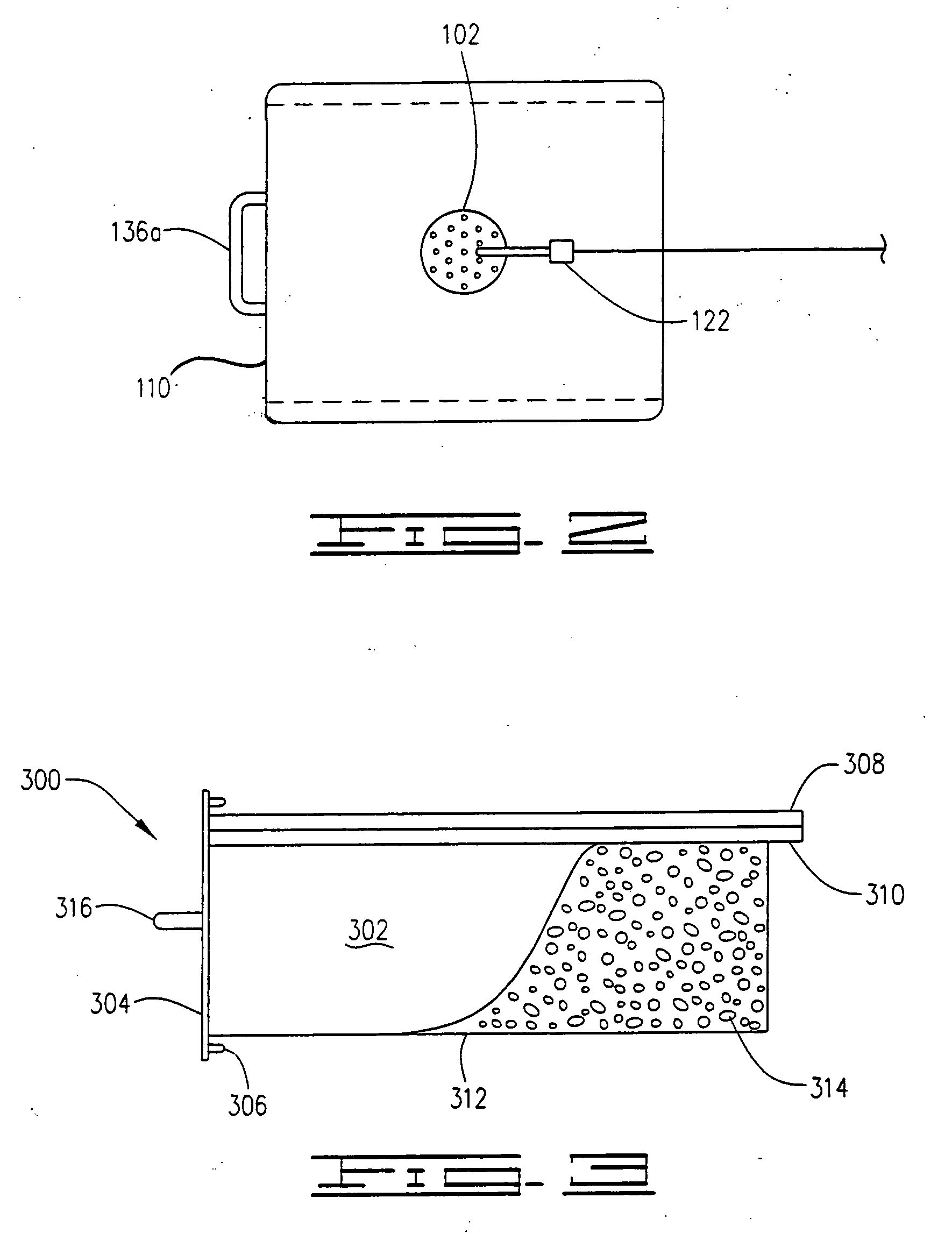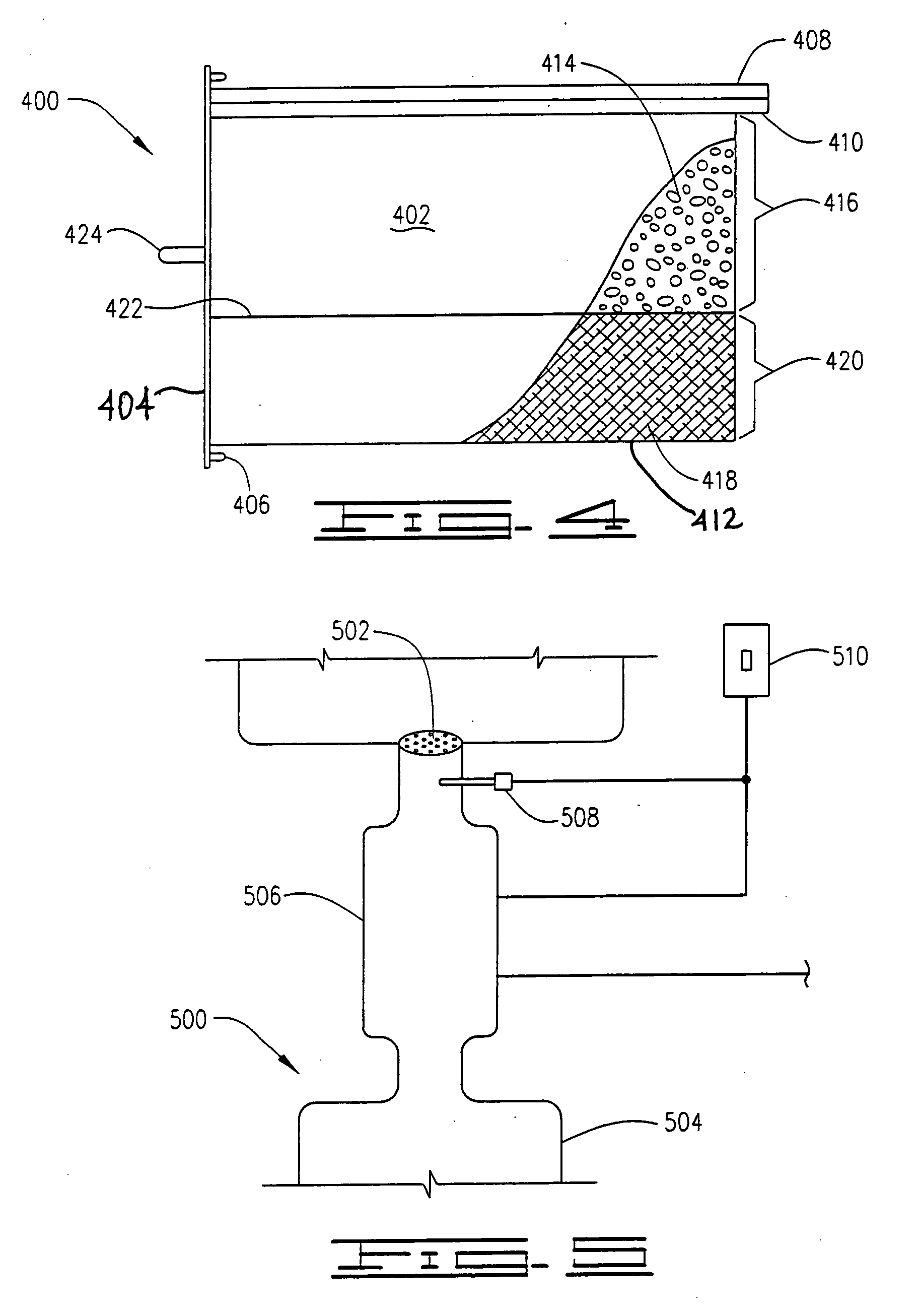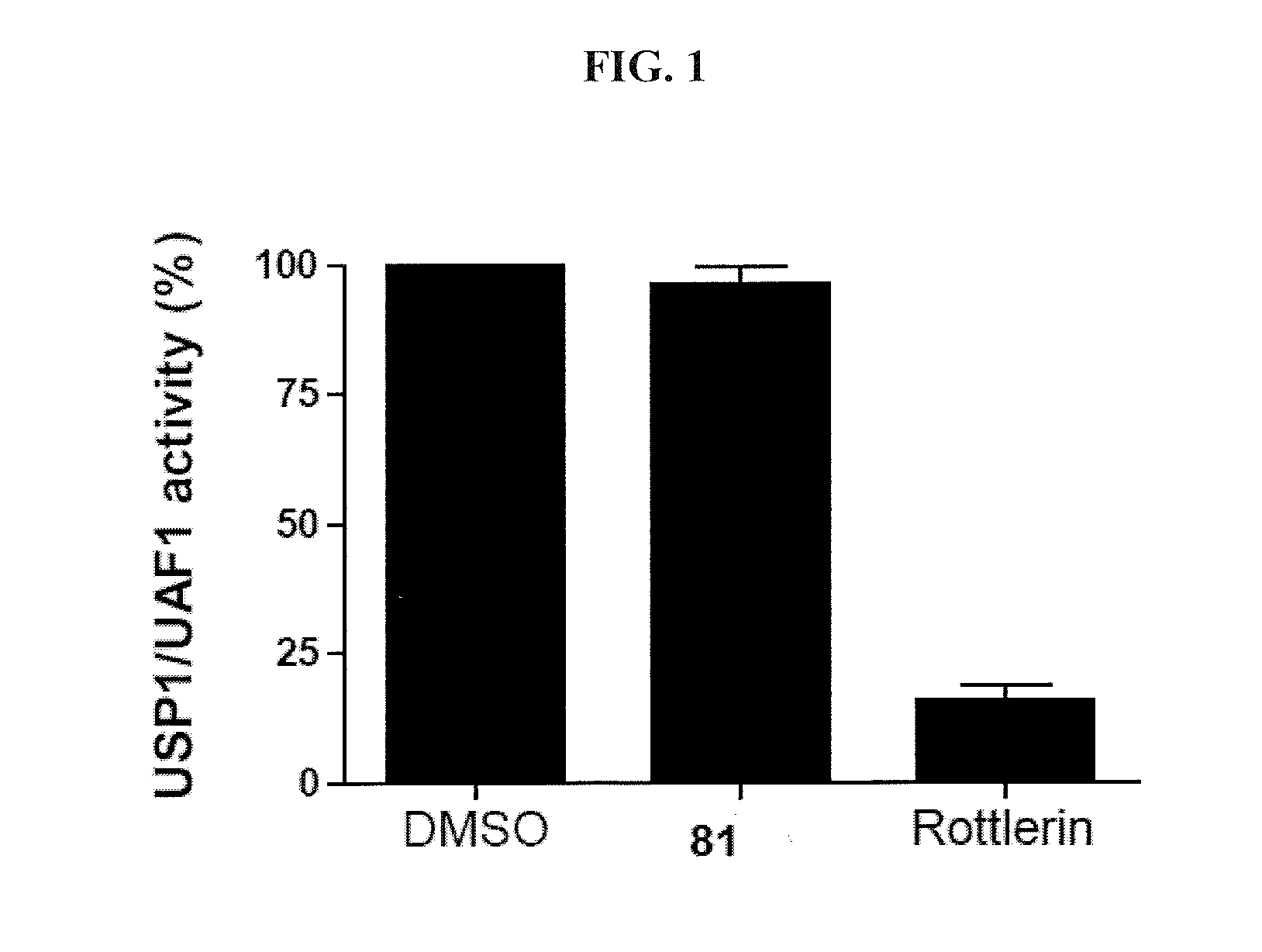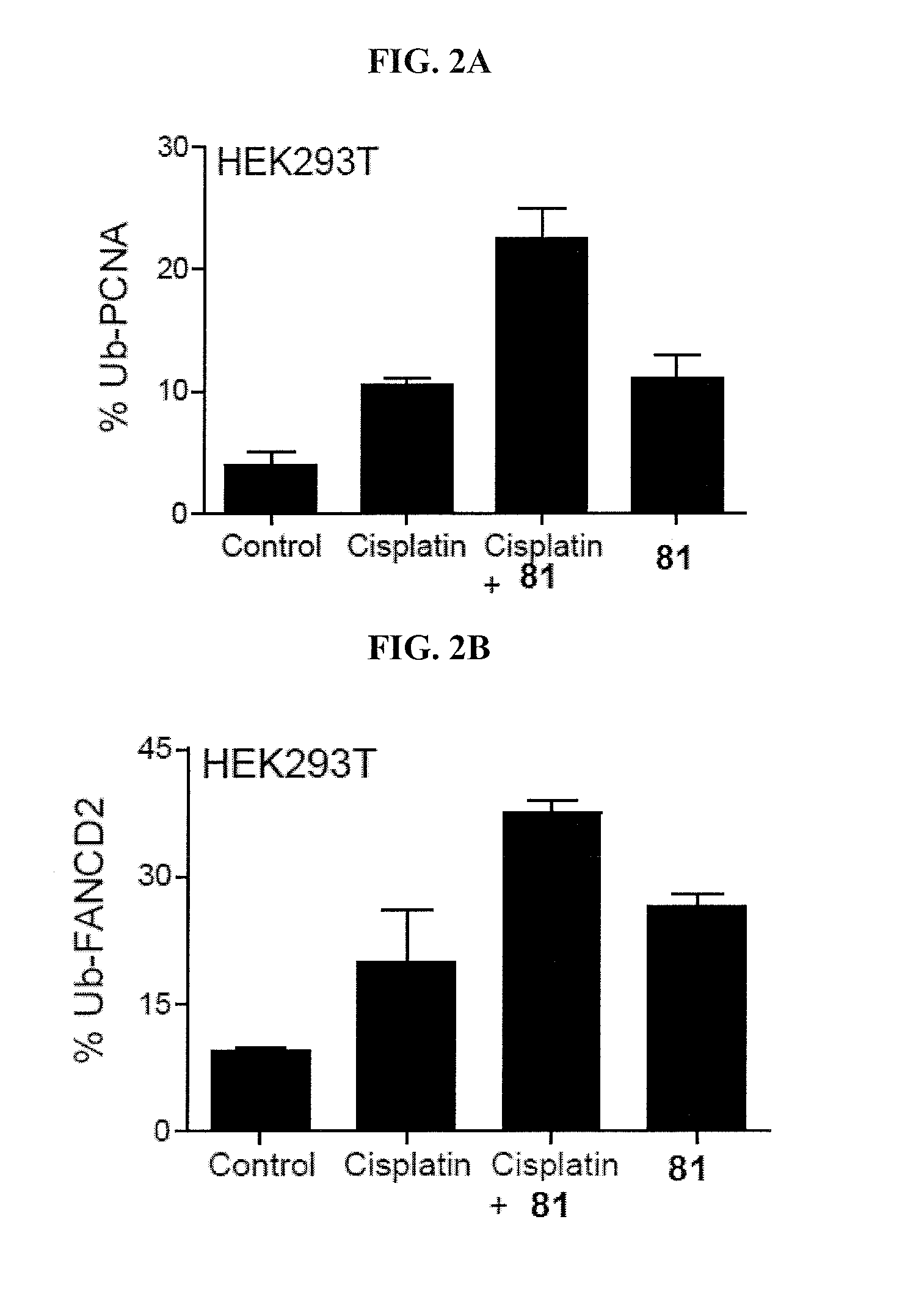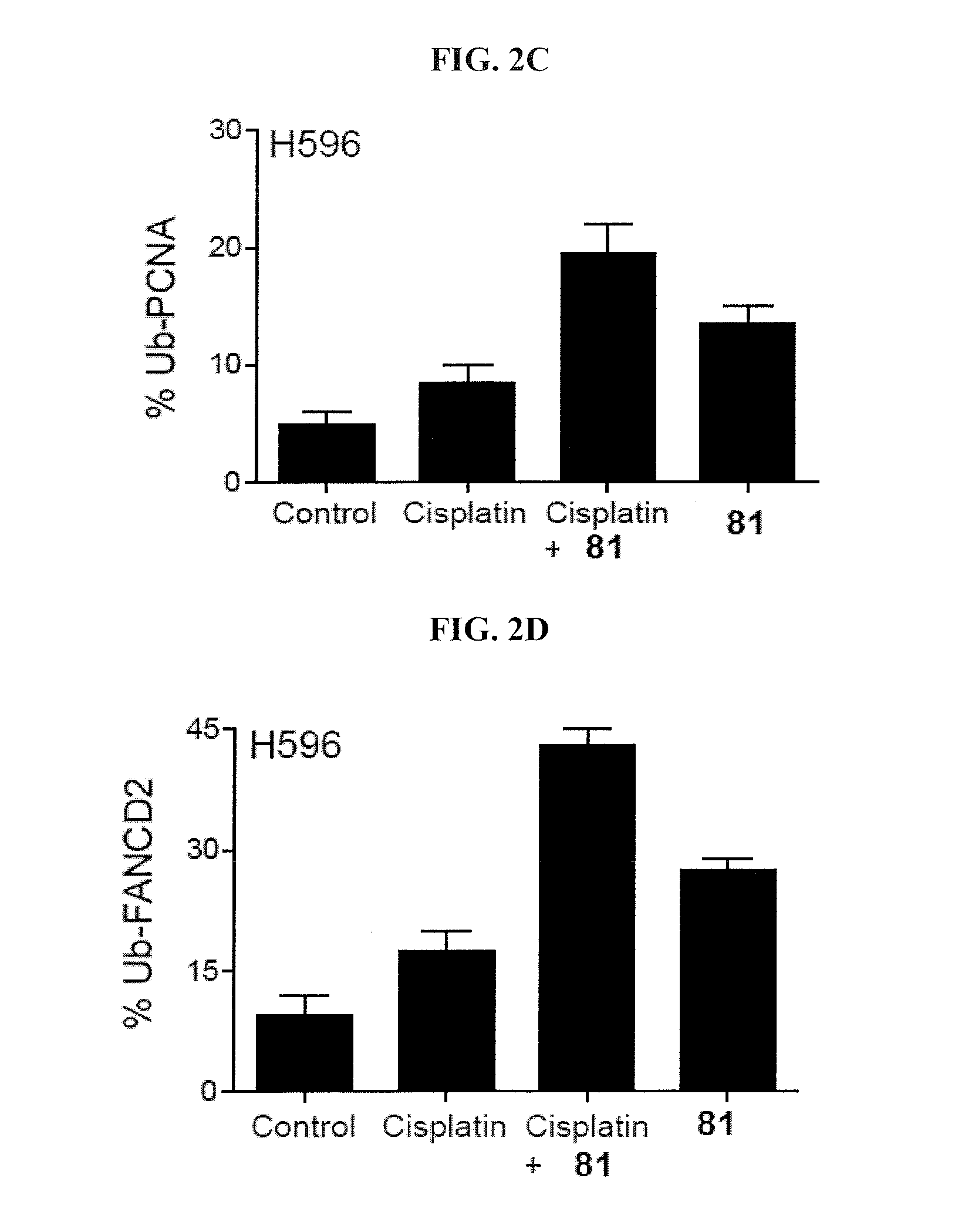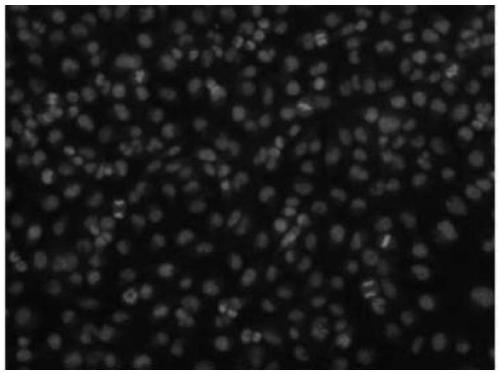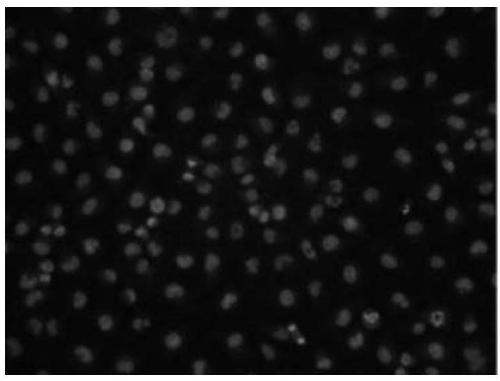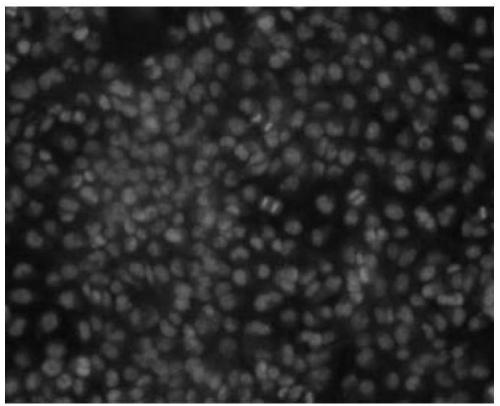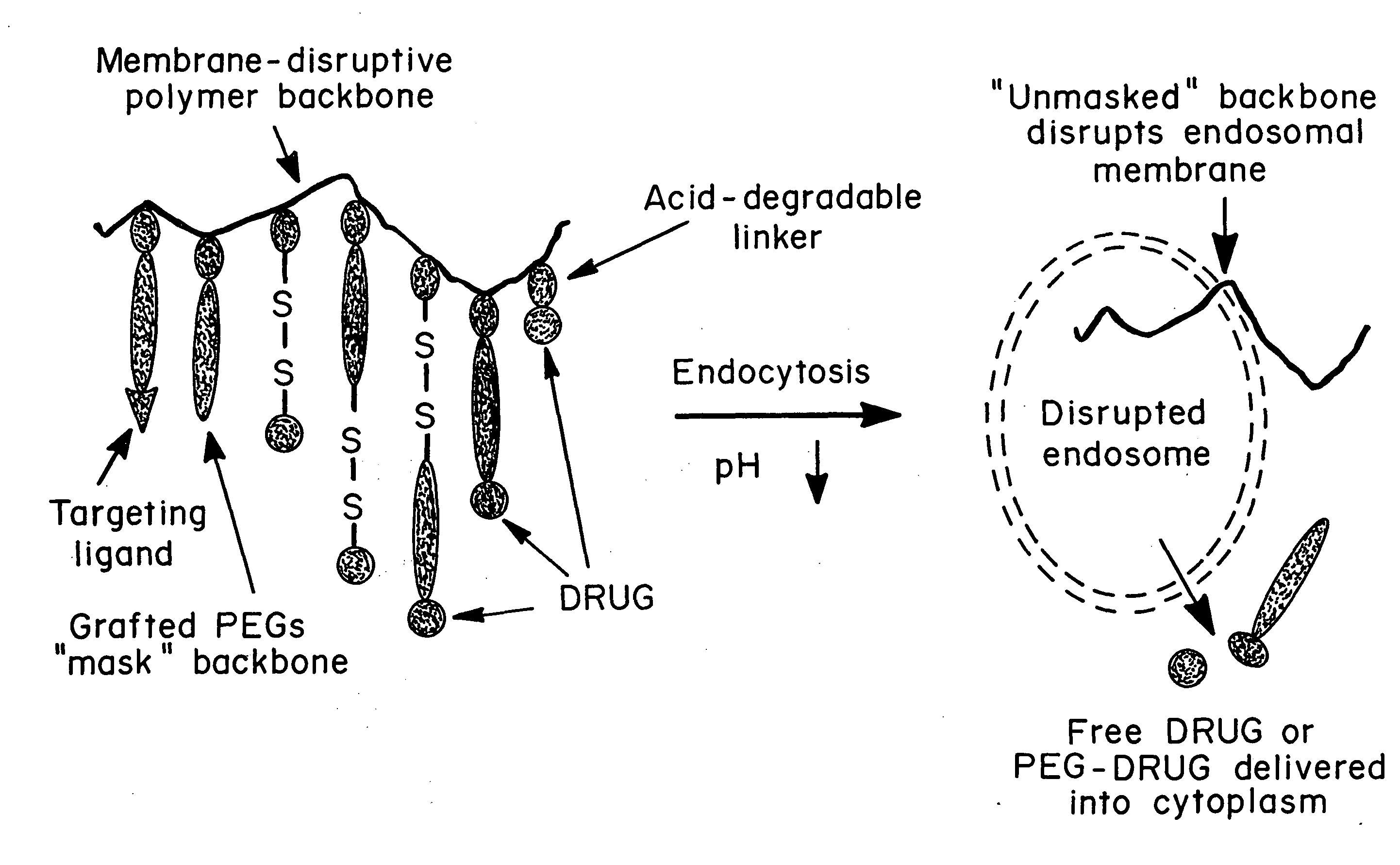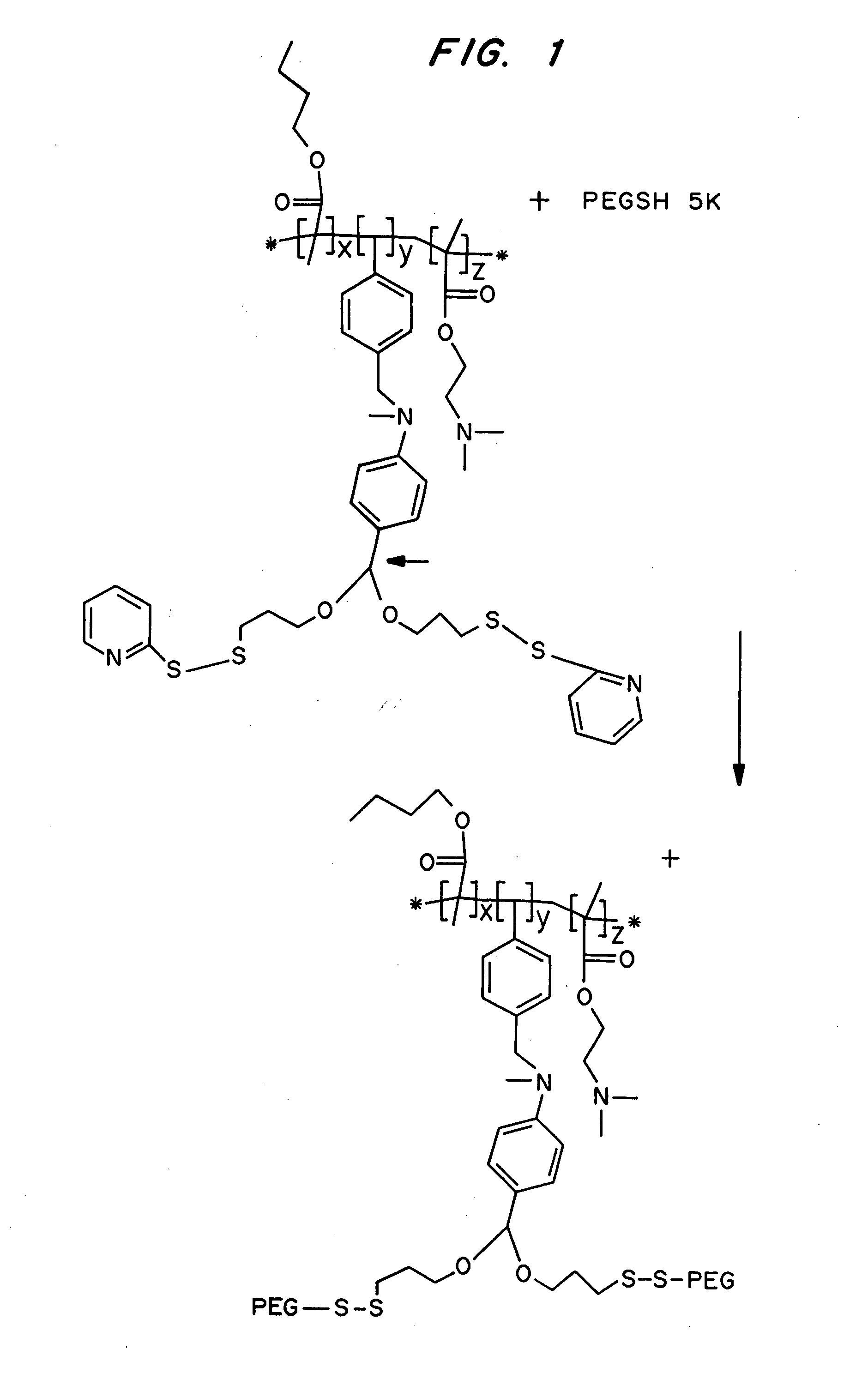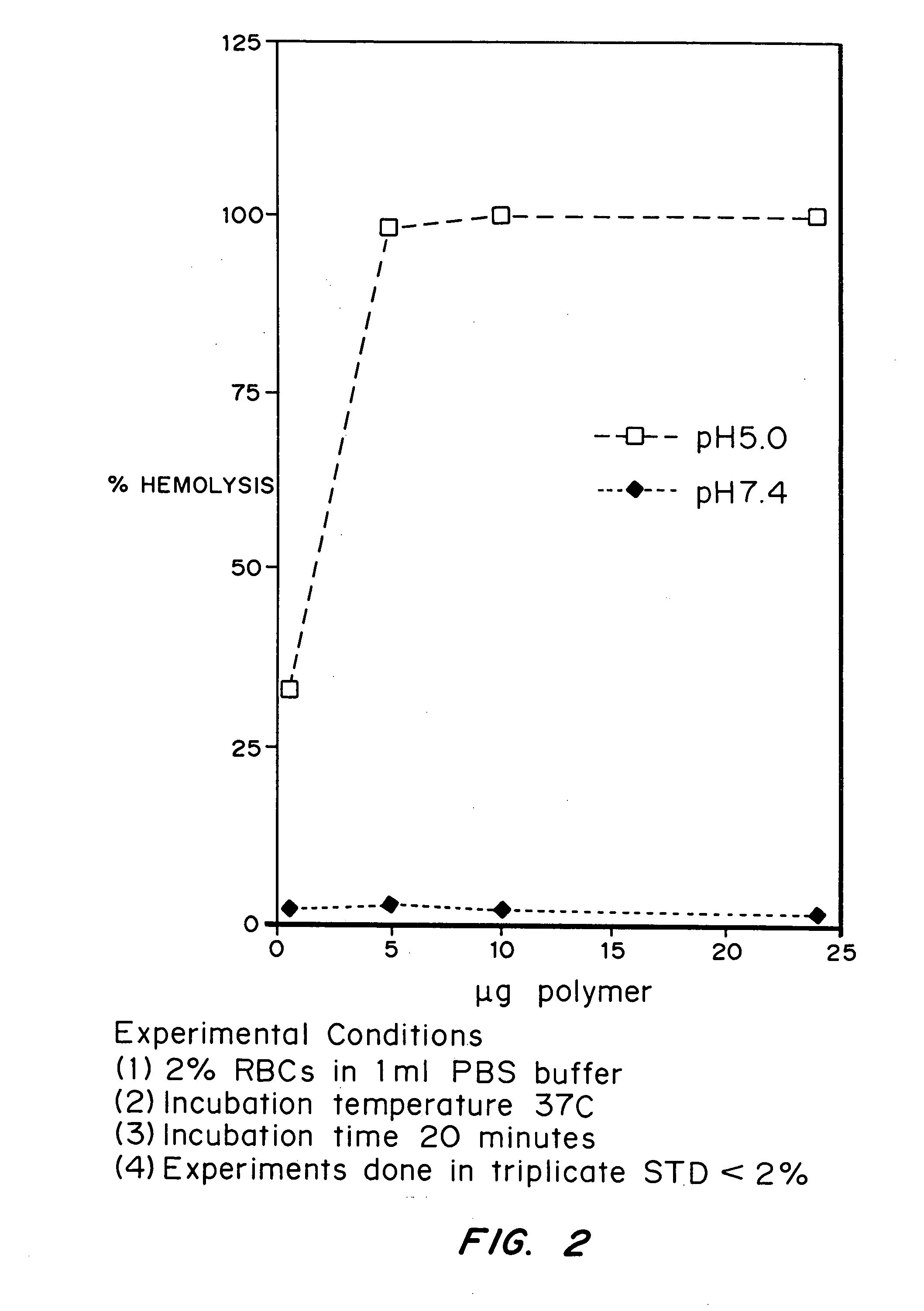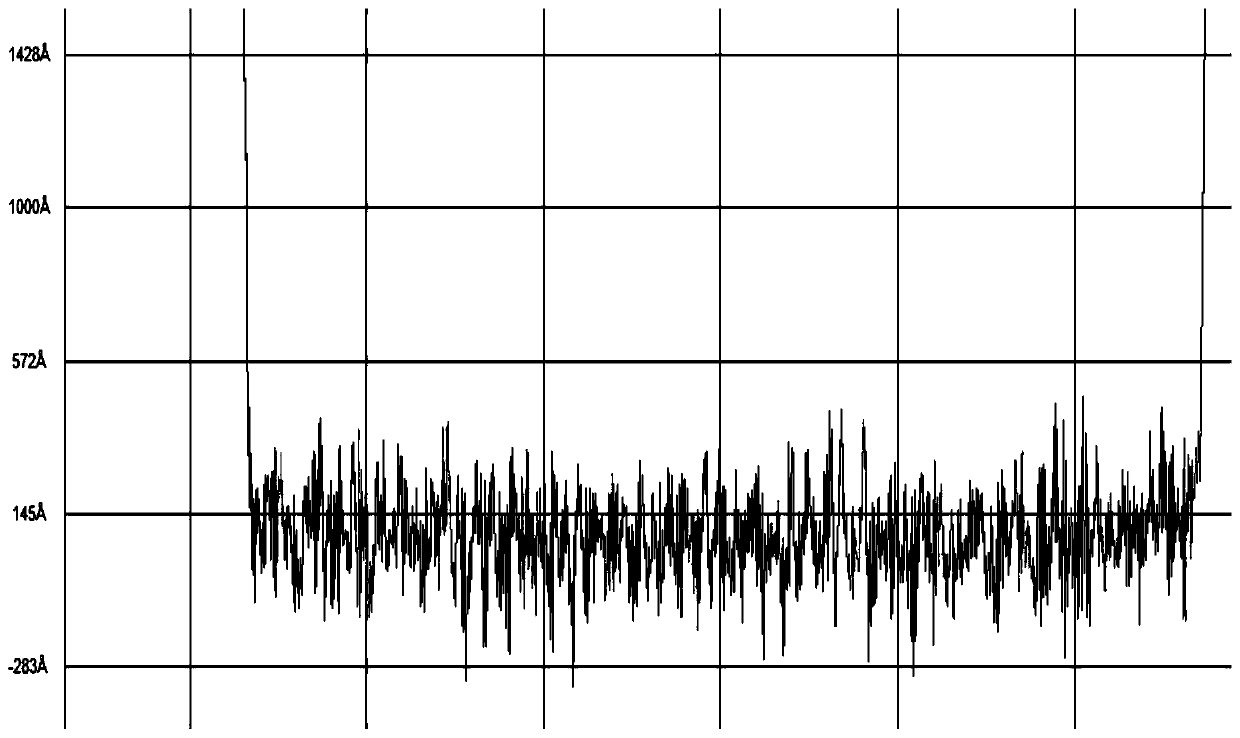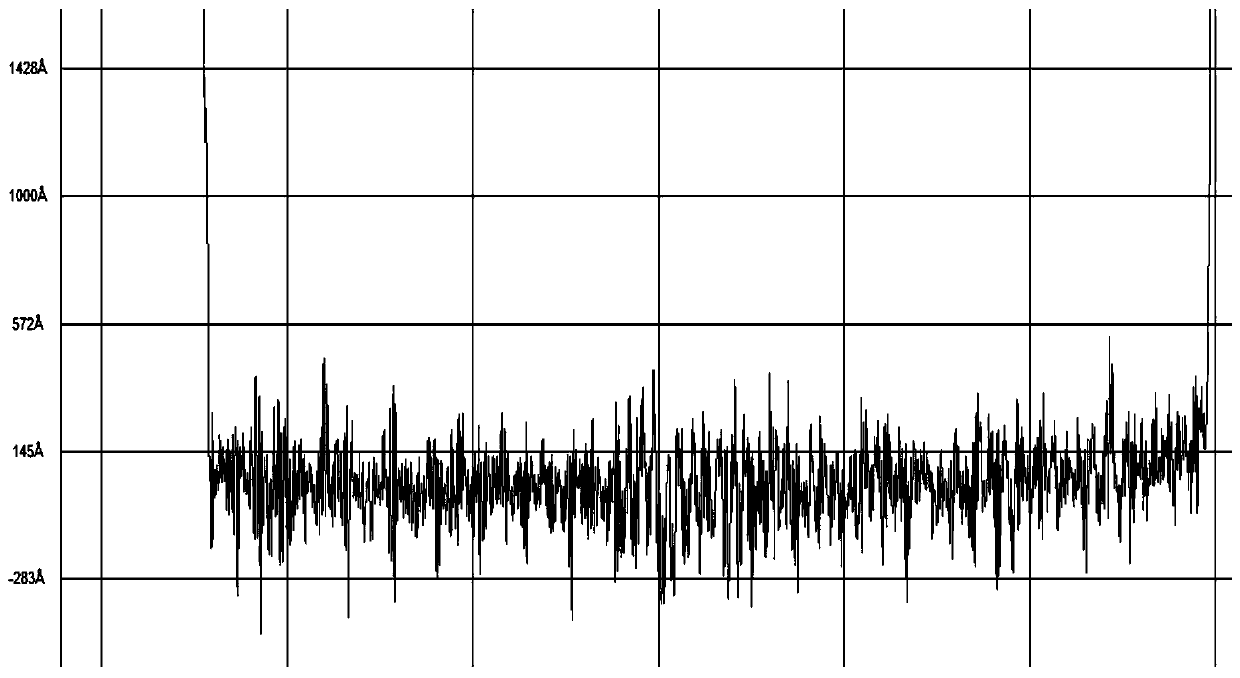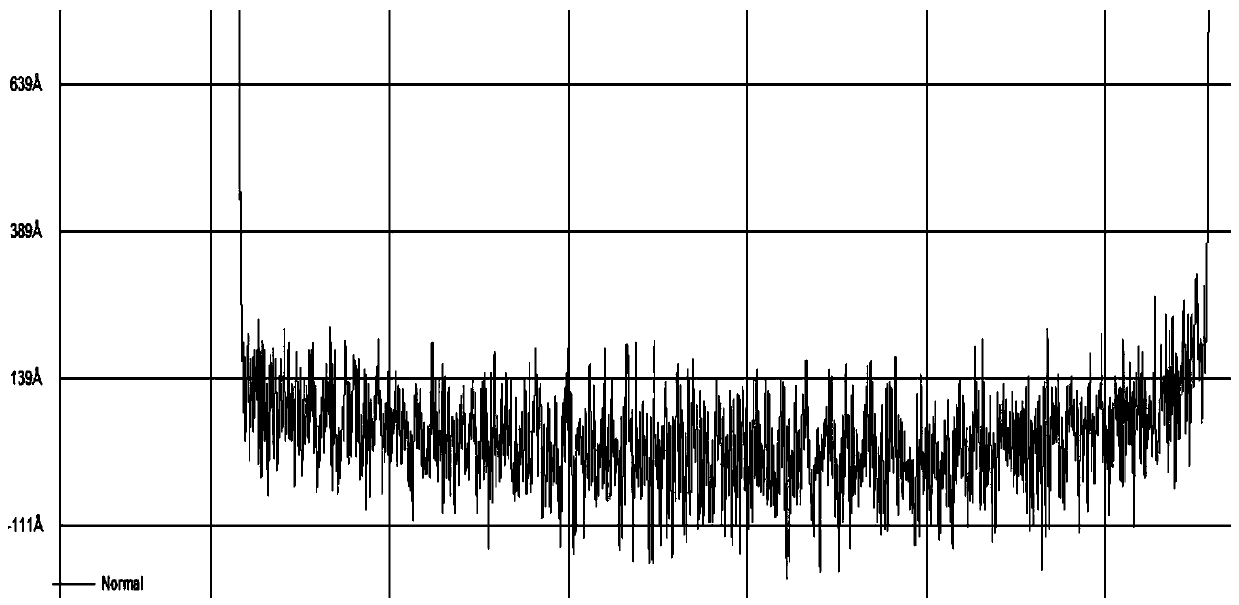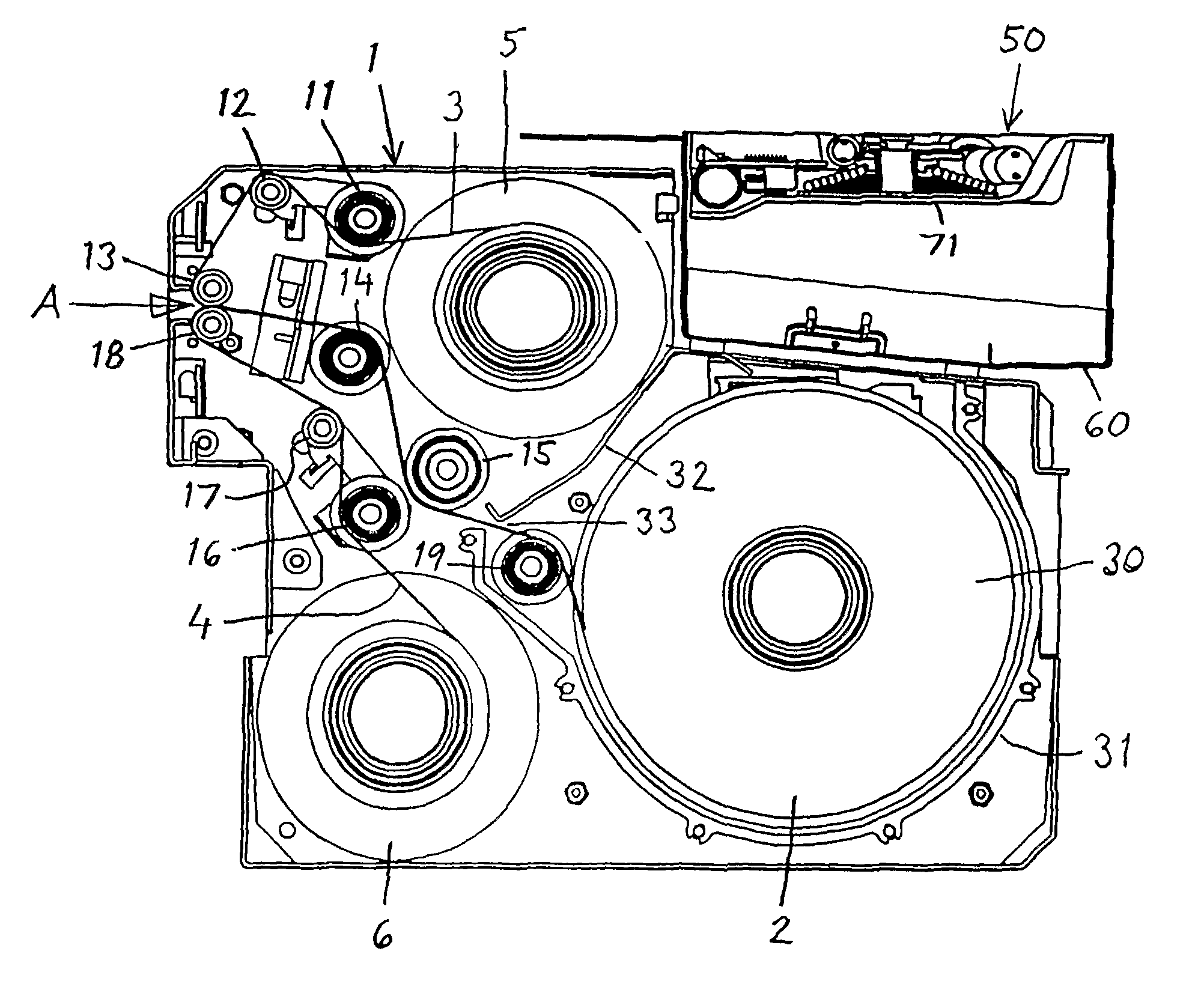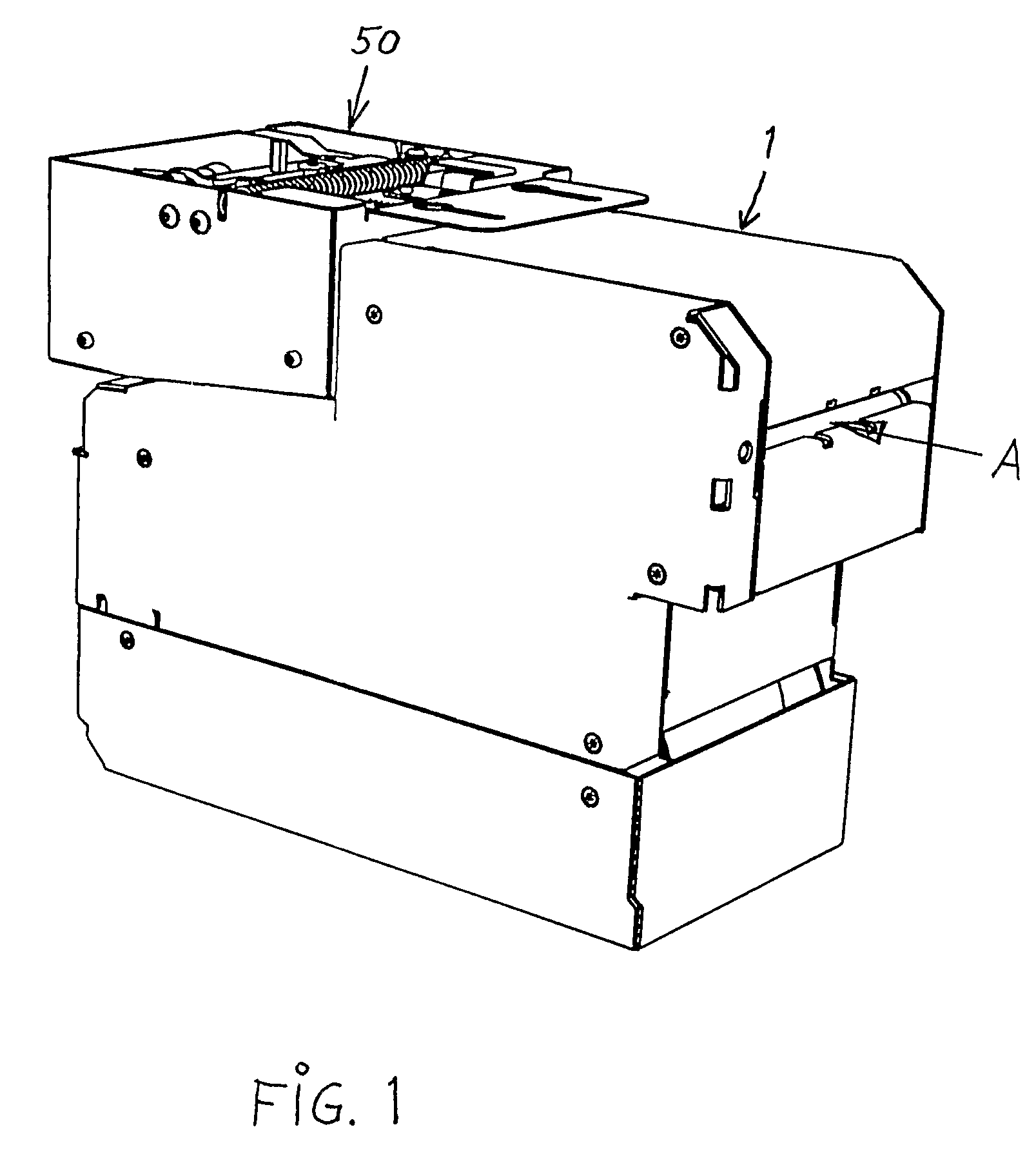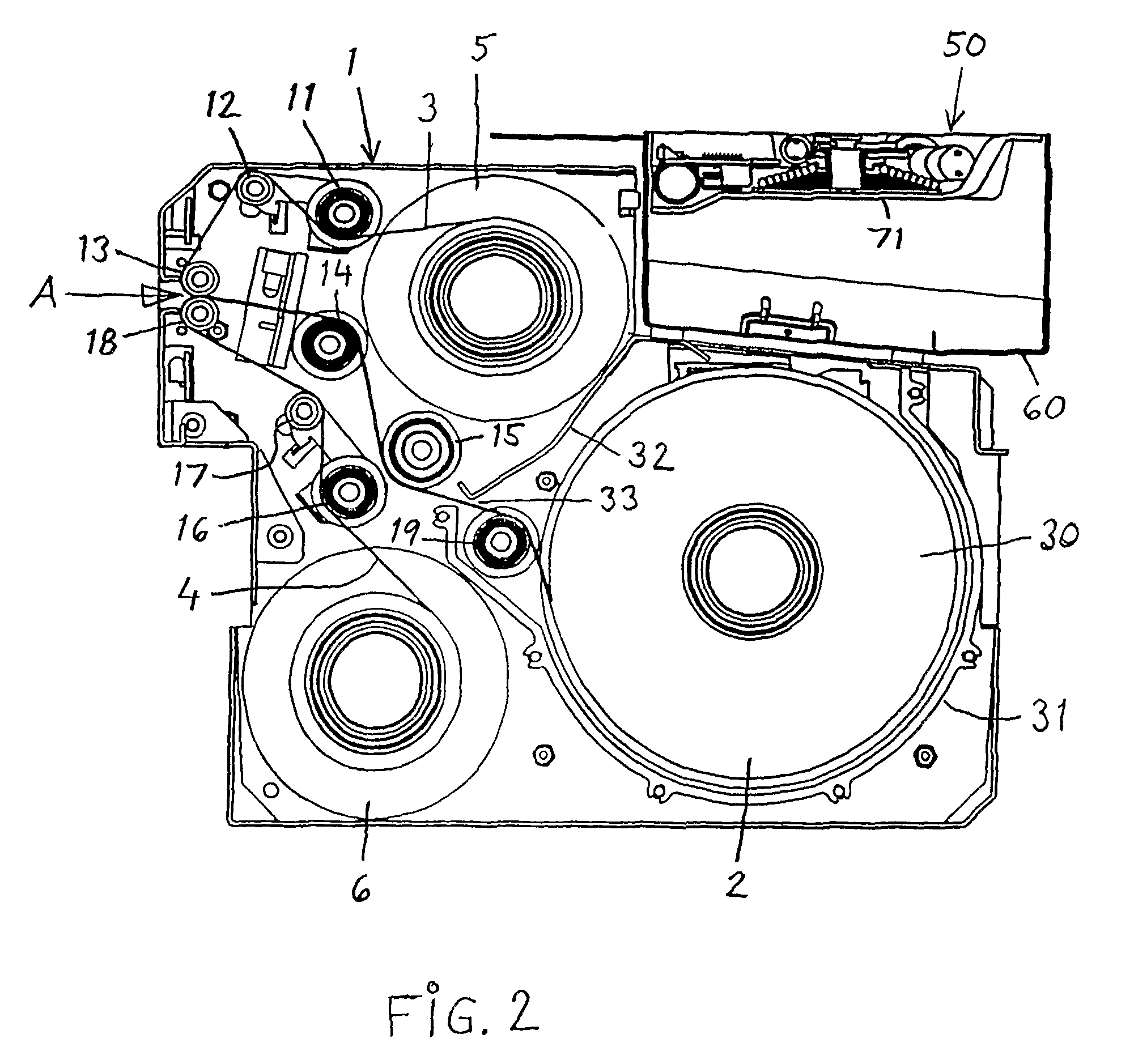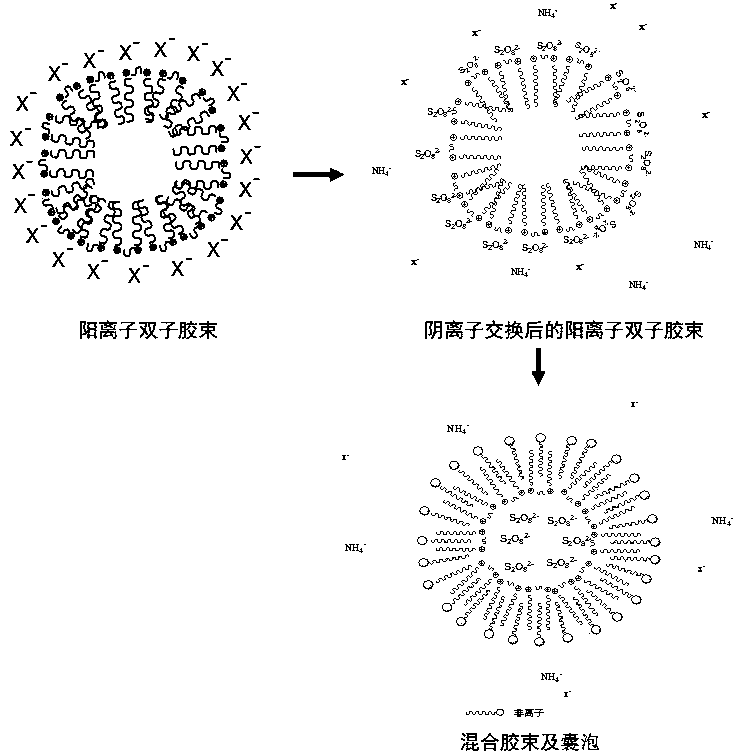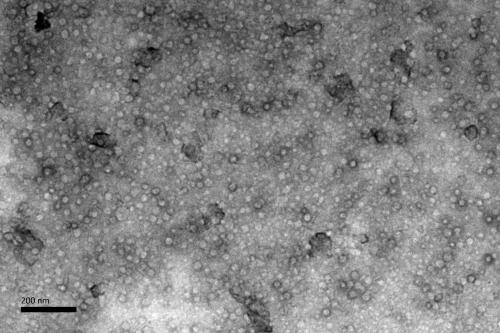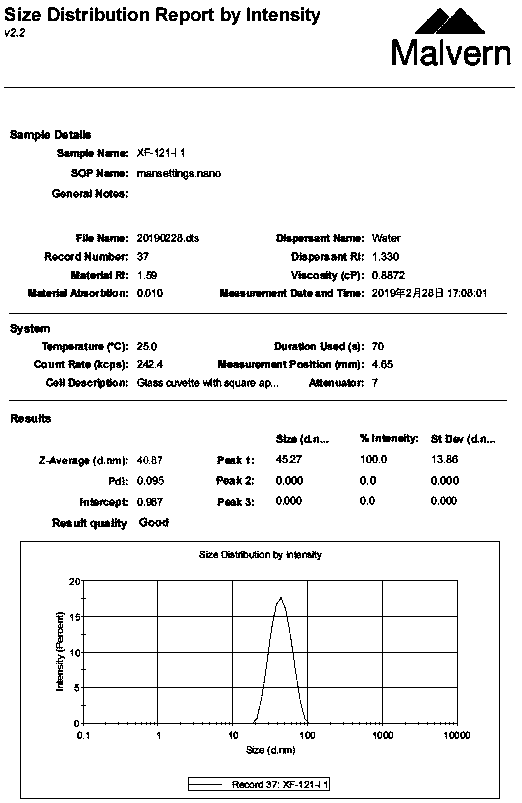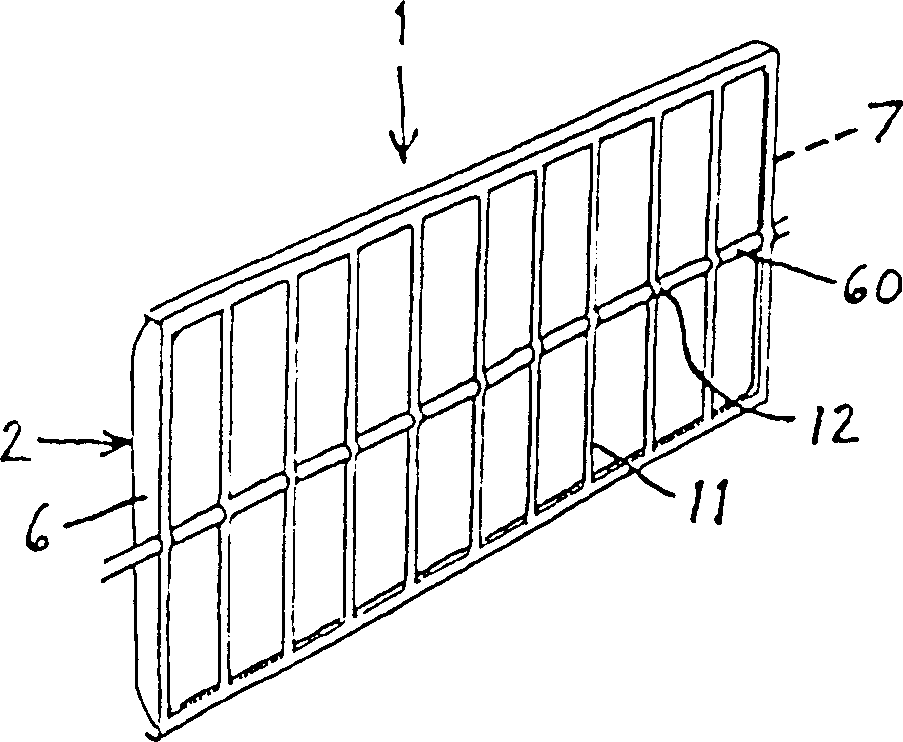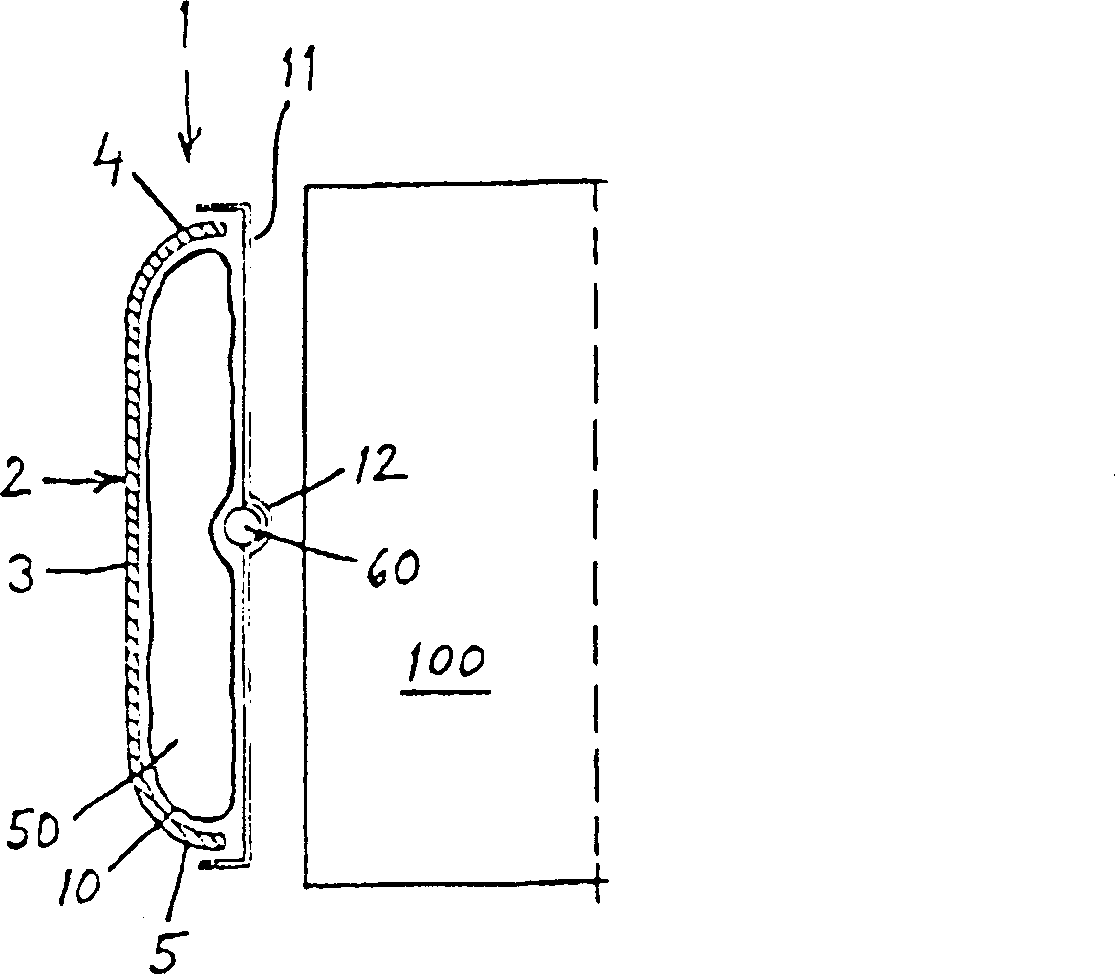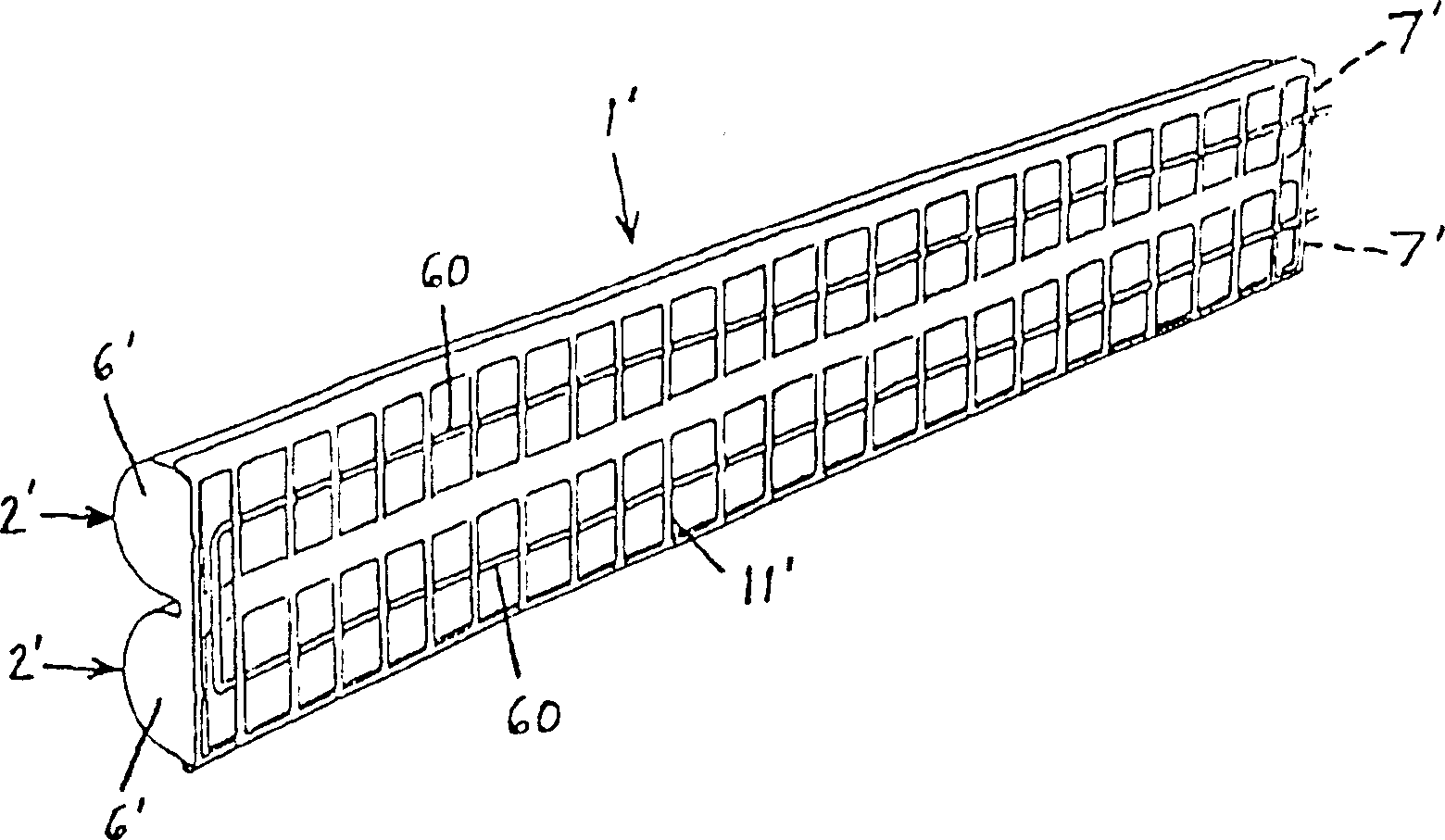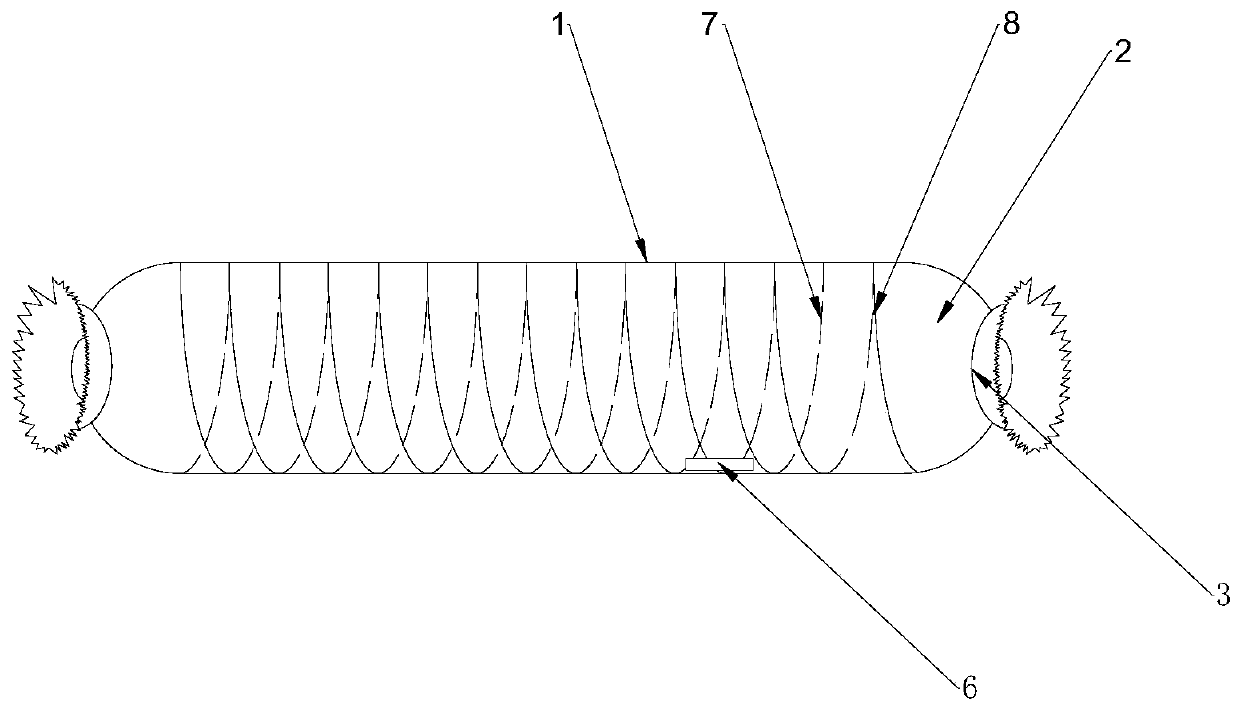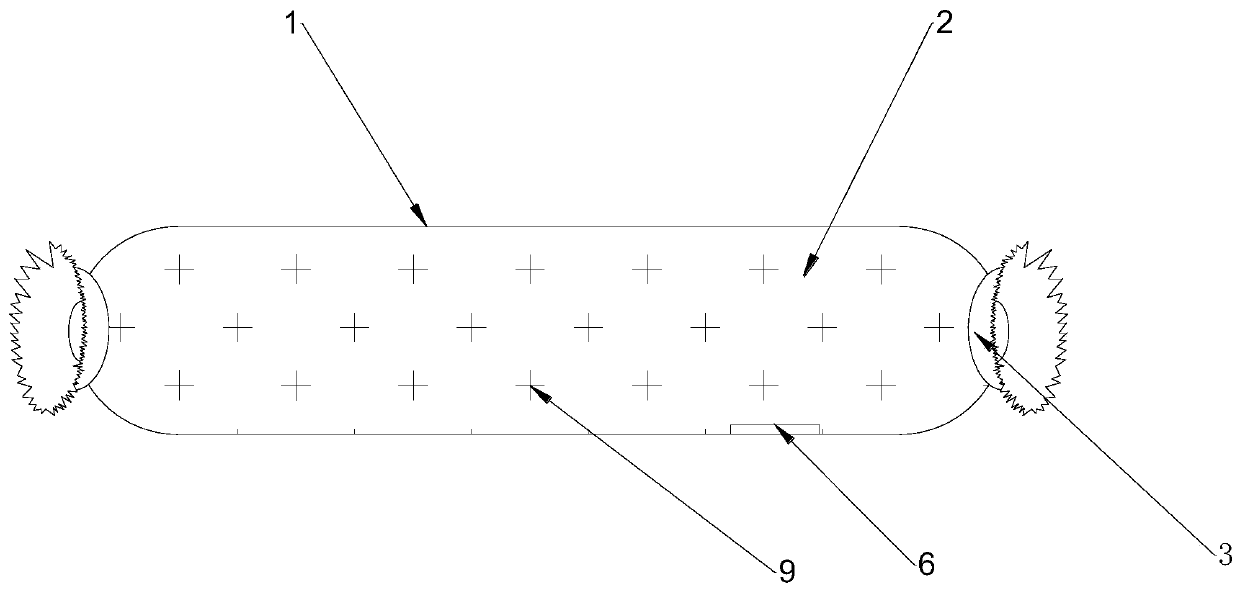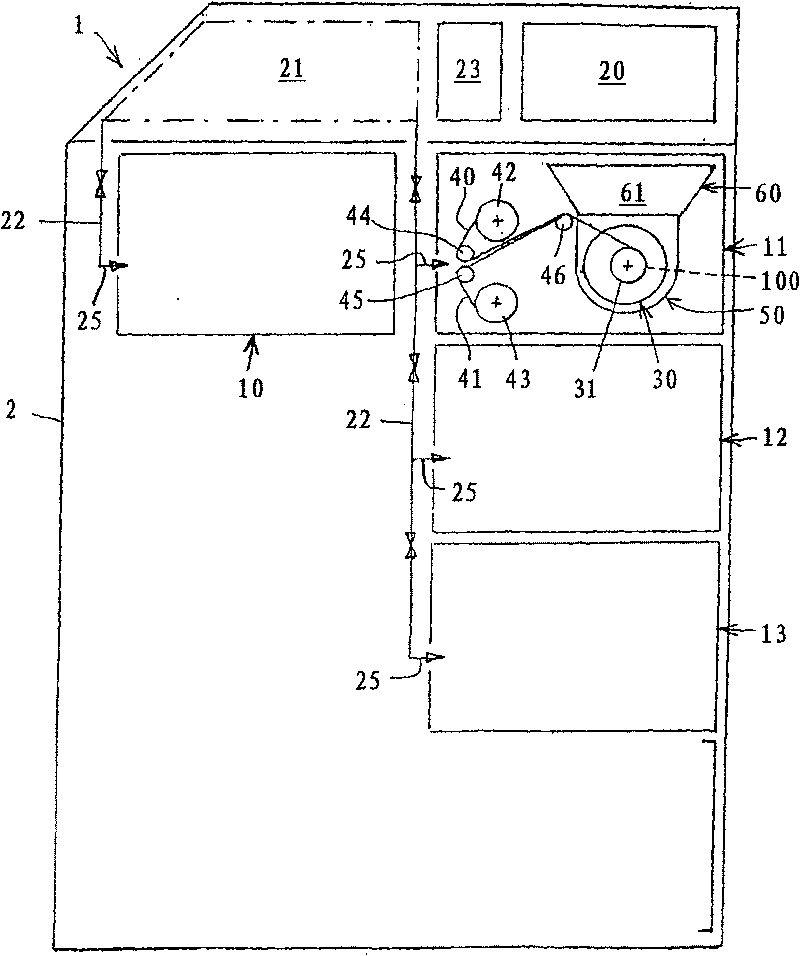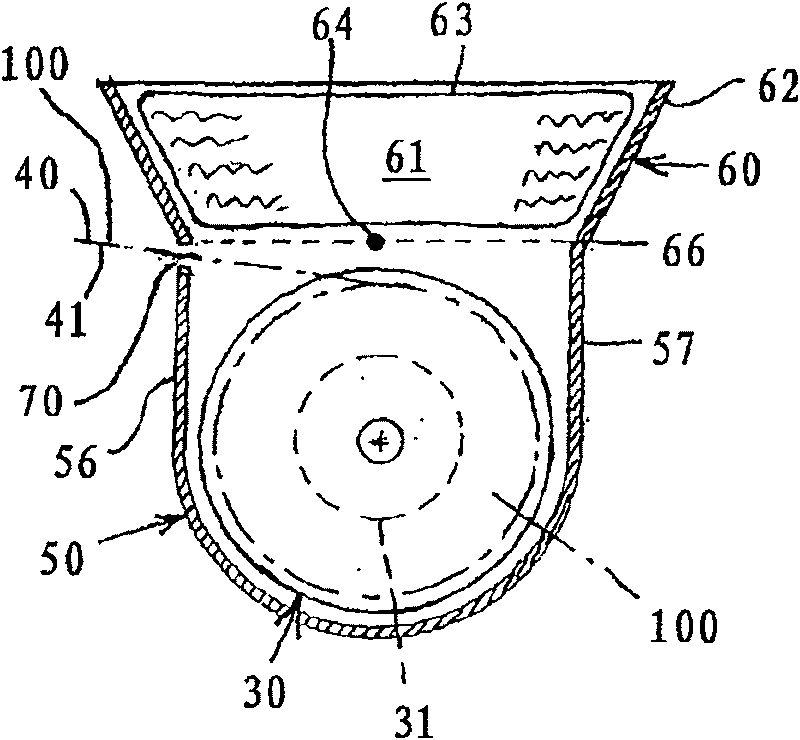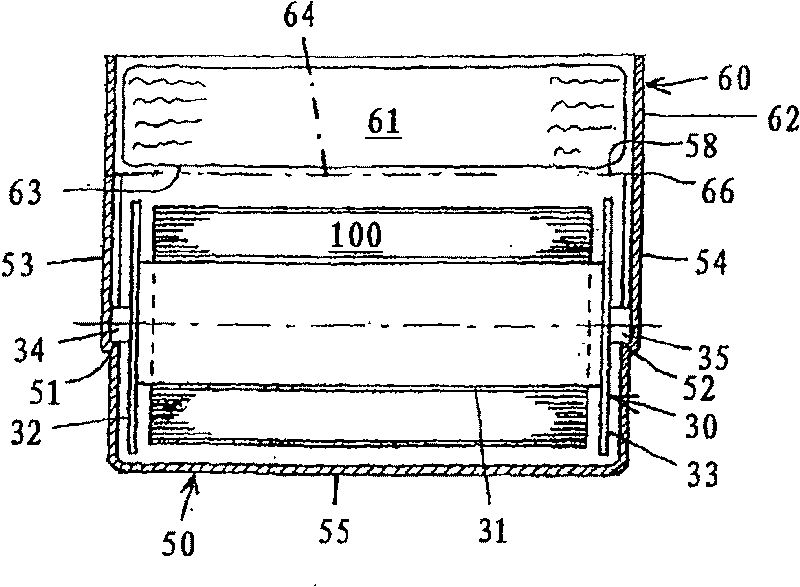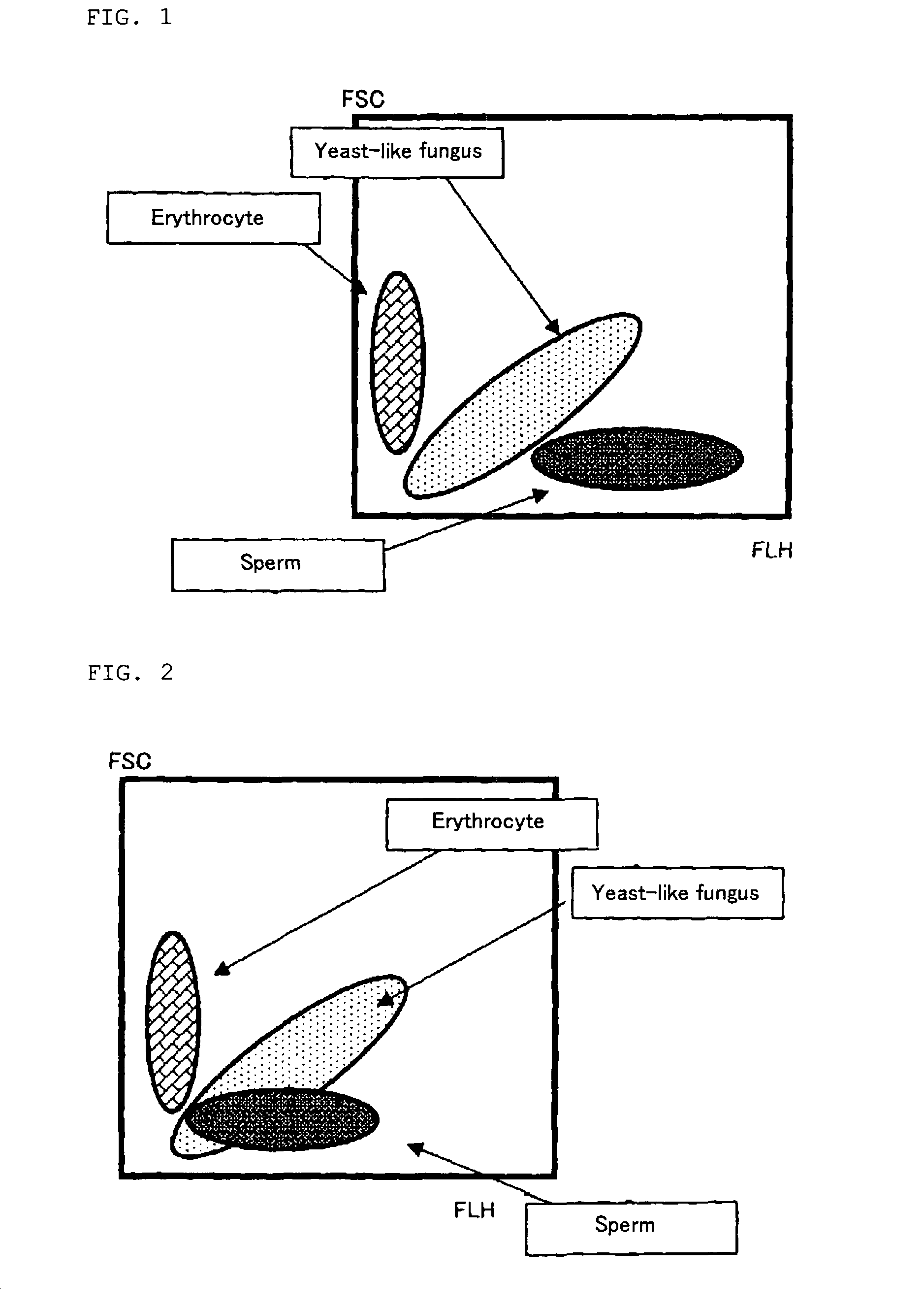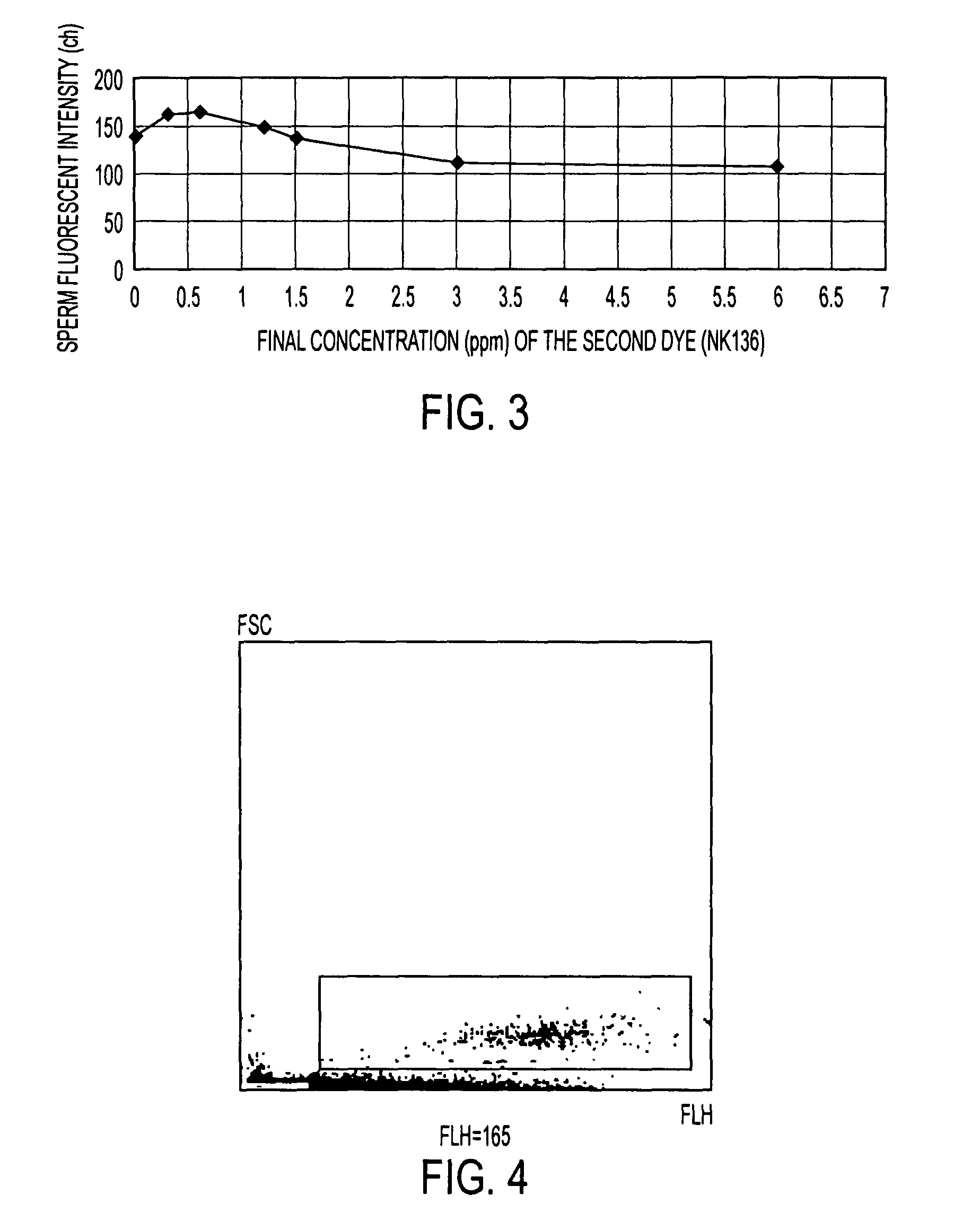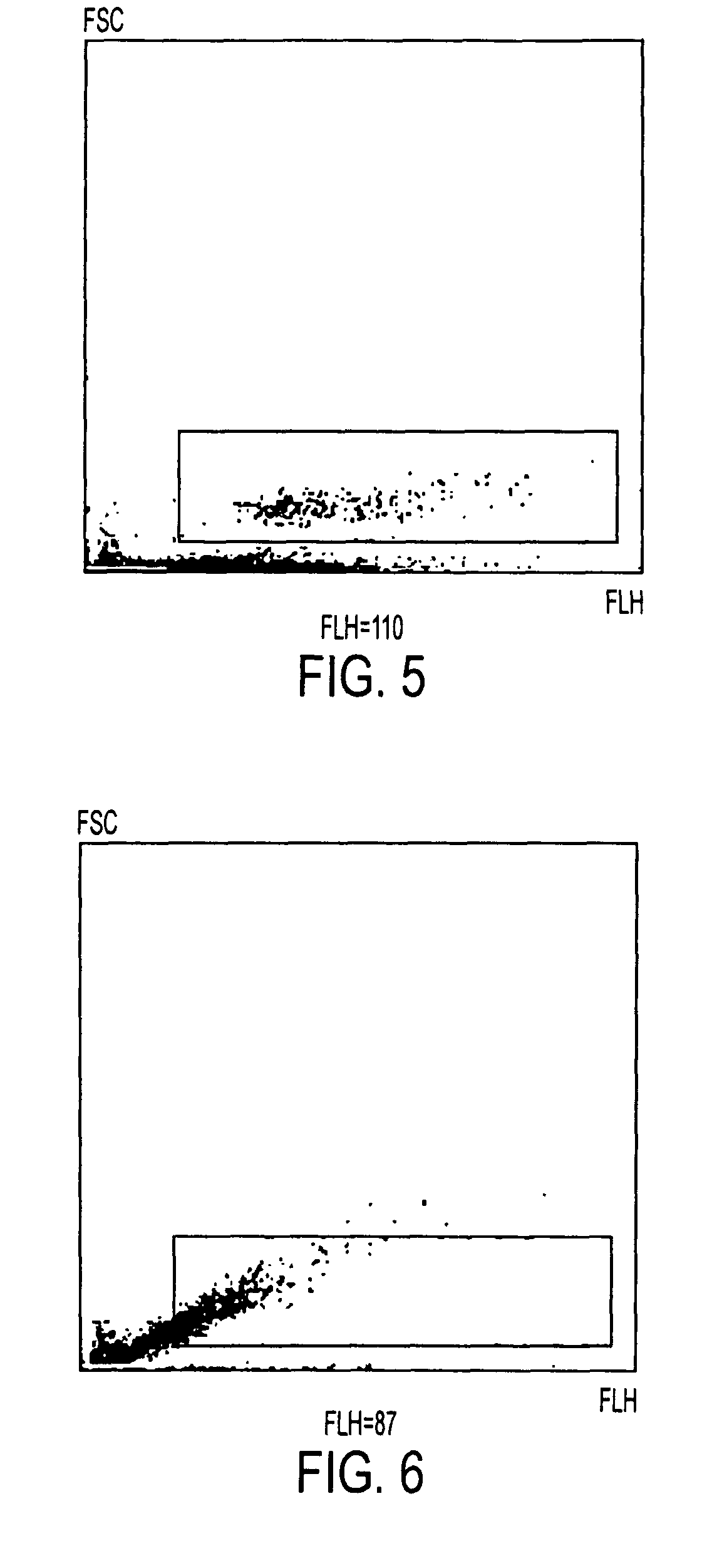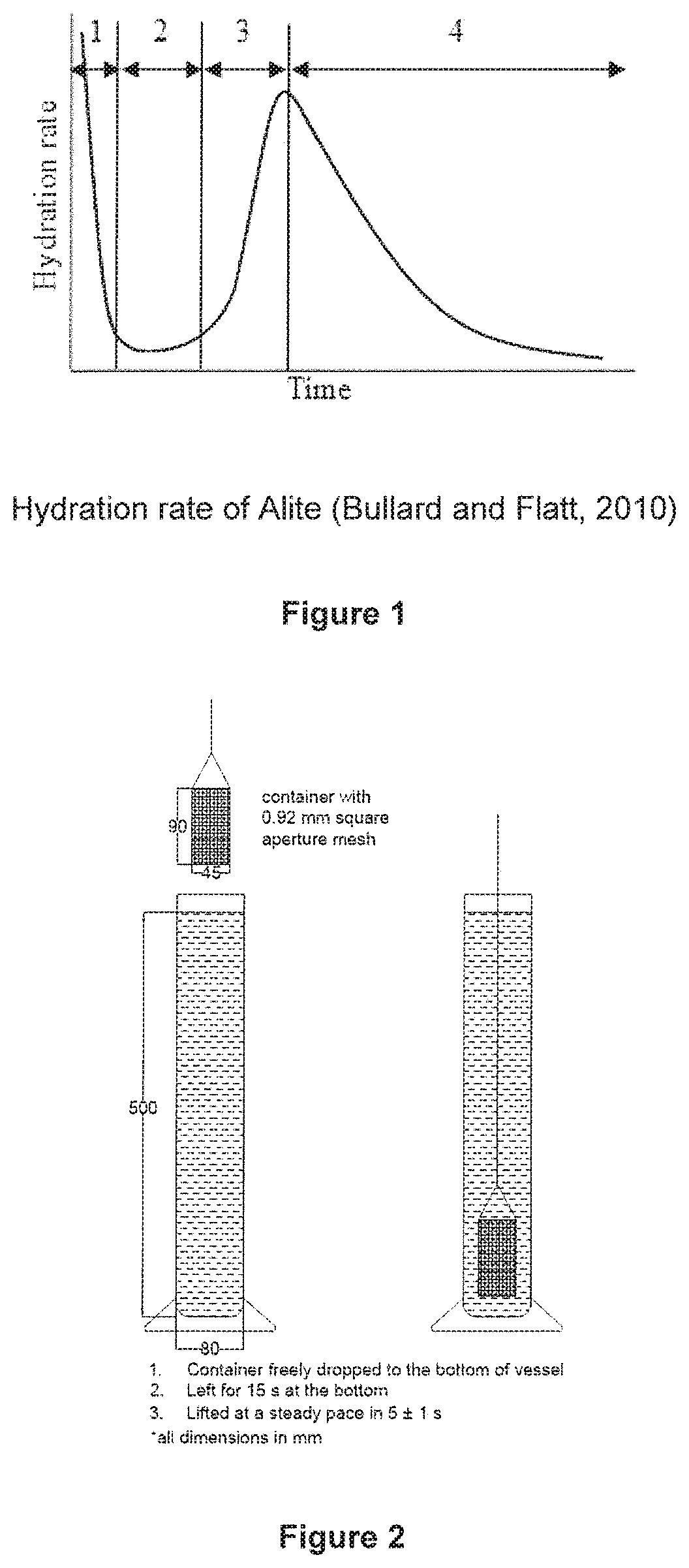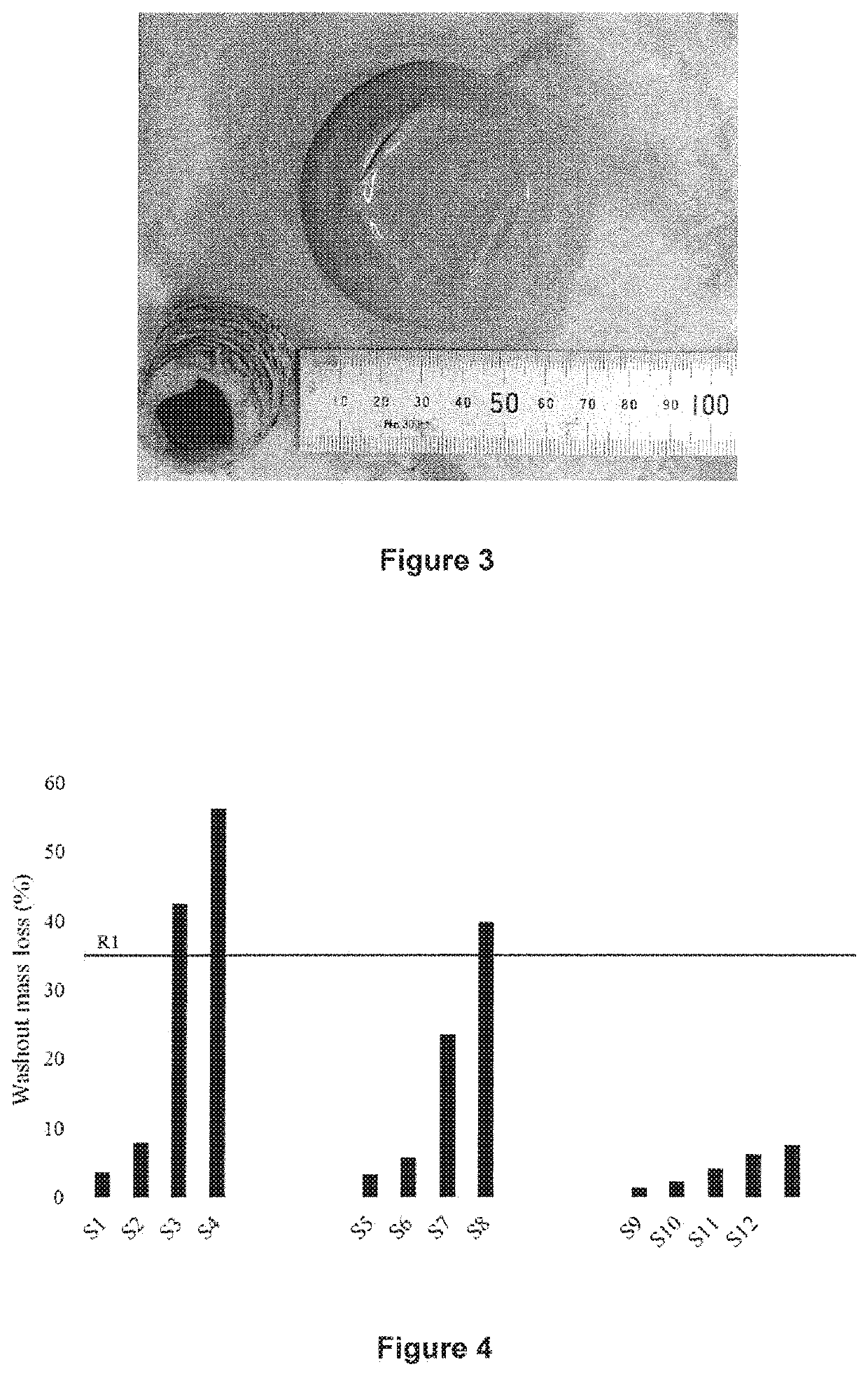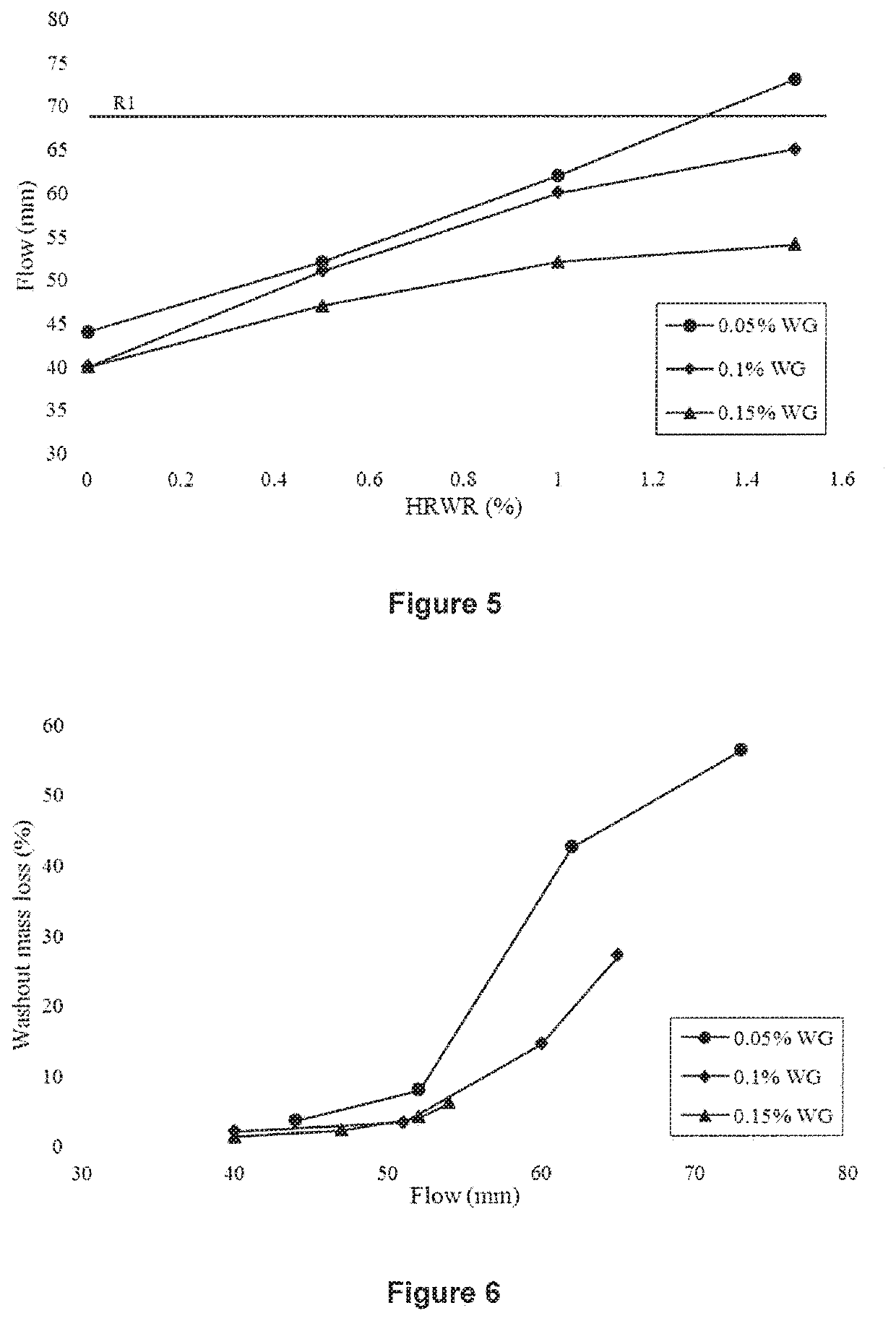Patents
Literature
31 results about "Destructive agent" patented technology
Efficacy Topic
Property
Owner
Technical Advancement
Application Domain
Technology Topic
Technology Field Word
Patent Country/Region
Patent Type
Patent Status
Application Year
Inventor
Enhanced transport using membrane disruptive agents
InactiveUS7737108B1Prevent uptakePrevent clearanceBiocidePeptide/protein ingredientsMetaboliteCell layer
Compositions and methods for transport or release of therapeutic and diagnostic agents or metabolites or other analytes from cells, compartments within cells, or through cell layers or barriers are described. The compositions include a membrane barrier transport enhancing agent and are usually administered in combination with an enhancer and / or exposure to stimuli to effect disruption or altered permeability, transport or release. In a preferred embodiment, the compositions include compounds which disrupt endosomal membranes in response to the low pH in the endosomes but which are relatively inactive toward cell membranes (at physiologic pH, but can become active toward cell membranes if the environment is acidified below ca. pH 6.8), coupled directly or indirectly to a therapeutic or diagnostic agent. Other disruptive agents can also be used, responsive to stimuli and / or enhancers other than pH, such as light, electrical stimuli, electromagnetic stimuli, ultrasound, temperature, or combinations thereof. The compounds can be coupled by ionic, covalent or H bonds to an agent to be delivered or to a ligand which forms a complex with the agent to be delivered. Agents to be delivered can be therapeutic and / or diagnostic agents. Treatments which enhance delivery such as ultrasound, iontopheresis, and / or electrophereis can also be used with the disrupting agents.
Owner:UNIV OF WASHINGTON
Nano-encapsulated triggered-release viscosity breakers
InactiveUS20100267594A1Easy to carryMaximum flexibilityCosmetic preparationsToilet preparationsWater dispersibleFracturing fluid
A method for the encapsulation and triggered-release of water-soluble or water-dispersible materials. The method comprises a) providing an amount of electrolyte having a charge, b) providing an amount of counterion having a valence of at least 2, c) combining the polyelectrolyte and the counterion in a solution such that the polyelectrolyte self-assembles to form aggregates, d) adding a compound to be encapsulated, and e) adding nanoparticles to the solution such that nanoparticles arrange themselves around the aggregates. Release of the encapsulated species is triggered by disassembly or deformation of the microcapsules though disruption of the charge interactions. This method is specifically useful for the controlled viscosity reduction of the fracturing fluids commonly utilized in the oil field.
Owner:RICE UNIV +1
Process for recycling polyolefin cross-linked substance or polyolefin foamed substance
InactiveUS6090862AHigh elongationGood moldabilityPlastic recyclingPeptide preparation methodsCross-linkPolymer science
A process is developed for recycling a polyolefin cross-linked substance having a cross-linkage, a polyolefin foamed substance free from a cross-linkage or a polyolefin foamed substance having a cross-linkage. The process includes the step of heating the polyolefin cross-linked substance together with a cross-linkage breaking agent, whereby breaking the cross-linkage to recycle the polyolefin cross-linked substance into a moldable thermoplastic resin. Further, the process includes the step of adding a foaming-agent-decomposition facilitating agent to the polyolefin foamed substance in the course of thermally melting the polyolefin foamed substance, whereby decomposing a residual foaming agent remaining in the polyolefin foamed substance. Furthermore, the process includes the step of adding a foaming-agent-decomposition facilitating agent to the polyolefin foamed substance in the course of heating the polyolefin foamed substance to break the cross-linkage, whereby decomposing a residual foaming agent remaining in the polyolefin foamed substance. The resulting recycled product is improved in terms of moldability, strength, elongation and superficial appearance.
Owner:TOYOTA JIDOSHA KK +1
Acidic Internal Breaker for Viscoelastic Surfactant Fluids in Brine
Compositions and methods are given for delayed breaking of viscoelastic surfactant gels inside formation pores, particularly for use in hydraulic fracturing. Breaking inside formation pores is accomplished without mechanical intervention or use of a second fluid. Acidic internal breakers such as sulfuric acid and nitric acid are used. The break may be accelerated, for example with a free radical propagating species, or retarded, for example with an oxygen scavenger.
Owner:SCHLUMBERGER TECH CORP
Under-sink Apparatus for Target Pharmaceutical Compound Treatment
InactiveUS20090283409A1Avoid enteringElectrostatic separatorsGeneral water supply conservationActivated carbonFiltration
A target compound treatment apparatus of a size capable of being mounted under a sink, the apparatus comprising a destruction zone in which an aqueous solution containing at least one target compound is exposed to a destruction agent adapted to convert the target compound into destruction byproduct; a filtration zone in which a filtration agent removes the destruction byproduct from the solution; and a flow inducer / pump adapted to cause the aqueous solution to flow through the apparatus. The destruction agent may comprise an acid, a base, an oxidizing agent, or a reducing agent. The destruction agent may be available on a surface of a solid substrate disposed within the destruction zone, or it may be available in a gaseous or liquid reagent that is admixed with the aqueous solution. The filtration agent may be comprised of an adsorption media such as activated carbon and / or other filtration means for removing destruction byproduct. The pump may be manually activated, or it may be activated by a sensor that detects a solution entering the apparatus.
Owner:STERN TOMMY +1
Methods and compositions for breaking viscosified fluids
Improved methods for treating and for fracturing subterranean formations and the fluid compositions are provided. A method presented herein is a method of reducing the viscosity of a viscosified treatment fluid that comprises providing a viscosified treatment fluid that comprises a basic fluid and a gelling agent, providing a breaker composition comprising an oxidizing breaker and a breaker activator that comprises a reducing sugar; and allowing the breaker composition and the viscosified treatment fluid to interact so as to reduce the viscosity of the viscosified treatment fluid.
Owner:HALLIBURTON ENERGY SERVICES INC
Treatment fluid with oxidizer breaker system and method
A treatment fluid composition for treating a subterranean formation is formed from an aqueous fluid, a hydratable polymer and a polymer breaking system. The polymer breaking system includes an oxidizing breaking agent and an activator capable of providing a bisulfite ion source. A method of treating a subterranean formation may also be performed by forming a treatment fluid comprising an aqueous hydrated polymer solution and a polymer breaking system. The polymer breaking system includes a breaking agent of an oxidizer and an activator capable of providing a bisulfite ion source. The treatment fluid is introduced into the formation.
Owner:PRAD RES & DEV LTD
Systems and methods for reducing unintended use of active ingredients in dermal delivery devices
InactiveUS20050112068A1Reduce usageSolid waste disposalTransportation and packagingCoated surfaceChemical reaction
The present invention is drawn to systems and methods for reducing unintended use of an active ingredient, such as residual active ingredients present in spent dermal patches and peels. The system can include a dermal patch including an active ingredient and a destructive agent configured to chemically react with the active ingredient. The destructive agent can be present in a container or an absorber. In one embodiment, the absorber can be used within the container. The container can be configured to receive the dermal patch such that the active ingredient contacts the destructive agent within the container. The absorber can be configured to contact the dermal patch such that the active ingredient contacts the destructive agent of the absorber. Additionally, systems and methods for impeding the unintended use of an active ingredient, such as those present in dermal patches or peels, are also provided. The system includes a dermal patch having a first side configured to deliver an active ingredient to a skin or mucosal surface, wherein the first side also includes a dermal adhesive. The system also includes an adhesive-coated device. The adhesive-coated surface of the device can be configured to adhere to the first side, wherein upon use of the dermal patch followed by contacting the adhesive-coated surface with the first side, residual active ingredient is rendered substantially inaccessible.
Owner:ZARS INC
Enzyme breakers and methods for fluid systems
This invention relates to slurry compositions and their use in oil field applications. In particular, this invention is directed to slurry compositions comprising non-saccharide polymers (for use as thickeners and / or friction reducers) and enzymatic breakers, as well as methods of using such slurry compositions as fracturing fluids in slickwater fracturing operations in low permeable rock formations.
Owner:TRICAN WELL SERVICE
Well treatment fluid compositions and methods for their use
InactiveUS20050016733A1High viscosityIncrease volumeFluid removalFlushingAlkaline earth metalCarboxylic acid
A well treatment fluid composition comprises a solvent (such as water), a polymer soluble or hydratable in the solvent, a crosslinking agent, an inorganic breaking agent, and an ester compound. Preferably, the hydratable polymer is a polysaccharide, such as galactomannan, cellulose, or derivatives thereof. The crosslinking agent is preferably a borate, titanate, or zirconium-containing compound. The inorganic breaking agent is preferably a metal-based oxidizing agent, such as an alkaline earth metal or transition metal-based oxidizing agent. The ester compound is preferably an ester of polycarboxylic acid, such as an ester of oxalate, citrate, or ethylenediamine tetraacetate. One example of a suitable ester compound is acetyl triethyl citrate.
Owner:COMBINED SYST +1
Low-temperature low-damage shale gas slickwater fracturing fluid and preparation method thereof
The invention relates to a low-temperature low-damage shale gas slickwater fracturing fluid and a preparation method thereof. The low-temperature low-damage shale gas slickwater fracturing fluid comprises the following components in percentage by mass: 0.01-0.08% of a drag reducer, 0.1-0.2% of a discharge aiding agent, 0.2-0.5% of a clay stabilizer, 0.005-0.02% of a polymer destroying agent and balance of water. The slickwater fracturing fluid provided by the invention has good salt tolerance, and flowback fluid is clear and transparent, contains no residue, does not need to be subjected to flocculation or precipitation treatment and can be repeatedly utilized directly or after being diluted with clear water, so that environmental protection burden is alleviated.
Owner:中石化石油工程技术服务有限公司 +1
Oxidative breakers in a silicone based suspension
An oxidative breaker system for use in reducing the viscosity of a polysaccharide-based or derivatized polysaccharide-based suspension includes a silicone carrier fluid, an oxidizer, and a suspension aid. The suspension aid is preferably fumed silica. The oxidizer may be selected from the group consisting of alkali metal peroxide, transition metal peroxide, persulfate compound, bromide compound, and bromate compound. In highly preferred embodiments, the oxidizer is magnesium peroxide or calcium peroxide. Alternative carrier fluids and suspension agents are also included in the art. Also disclosed is a method for breaking a polysaccharide-based suspension with the inventive oxidative breaker system.
Owner:FLOTEK CHEM LLC
Controlling Top of the Line Corrosion in Hydrocarbon Pipelines
InactiveUS20100304018A1Avoid foamingCost effectiveLiquid surface applicatorsDrilling compositionProduction lineHydrocarbon mixtures
The invention relates to applying corrosion inhibitor within a foam matrix to the top of the line of wet gas pipelines. The environment within a hydrocarbon containing pipeline may include fluids that form strong acids in the gas space at the upper portion of the pipeline and can rapidly corrode a carbon steel pipeline. The inventive solution is to provide a foam matrix created by a combination of foaming agent, foaming gas and corrosion inhibitor that are each selected to be compatible with each other and with the hydrocarbon mixture to form a stable foam matrix that treats the top of the line position for the length of the pipeline. A foam breaking agent at the end of the pipeline can be injected, if needed.
Owner:CONOCOPHILLIPS CO
Apparatus for target compound treatment
InactiveUS20110064624A1Water/sewage treatment by irradiationLighting and heating apparatusDocking stationMedicine
An apparatus adapted to treat at least one target compound comprising a housing through which fluid may pass; a receiving zone defined within the housing; disposed after the receiving zone within the housing, a destruction zone in which an aqueous solution containing at least one target compound is exposed to a destruction agent, the destruction agent adapted to convert the target compound into destruction byproducts; disposed after the destruction zone, a filtration zone containing a filtration agent adapted to remove the destruction byproducts from the solution; liquid disposal means for receiving solution from the filtration zone; and solid disposal means for receiving solids from the filtration zone, whereby, the target compound is first converted to byproducts, then the byproducts are filtered out of the solution, preventing target compounds from entering wastewater systems and ultimately re-entering the water supply. Physical embodiments of the invention include an in-line version for mounting under a sink; a version mounted near a sink and in communication with plumbing, but not in-line; a version that is transportable within a cart; and a toilet-mounted version for removing target compound from urine. Docking stations may be provided for collection of target compounds, which stations then releasably communicate with the apparatus to transfer collected target compounds from the station to the apparatus. Various agents and processes are disclosed for destroying target compounds and for filtering byproducts.
Owner:CLEAR RIVER ENVIRO
Method for preparing fracturing fluid thickener with self-destruction effect
The invention discloses a fracturing fluid thickener with a self-destruction effect. The fracturing fluid thickener comprises, by weight, 5-80% of monomer aqueous phase, 12-70% of oil-based solvents and 8-25% of emulsifiers. The usage of reducing agent solution in oxidation-reduction initiators accounts for 0.1-0.5% of the mass of emulsion. A method for preparing the fracturing fluid thickener mainly includes dissolving the emulsifiers in the oil-based solvents; adding the monomer aqueous phase with excessive oxidizing destruction agents into the oil-based solvents; carrying out stirring and deoxidizing, adding the reducing agent solution at the temperatures of 10-40 DEG C and initiating reaction for 0.5-4 hours to obtain inverse emulsion with the oxidizing destruction agents partially coated by micro-spheres; directly diluting the emulsion by the aid of water to prepare the fracturing fluid thickener with the self-destruction effect, or separating out the micro-spheres by sedimentation and then preparing the fracturing fluid thickener with the self-destruction effect. The fracturing fluid thickener and the method have the advantages that the fracturing fluid thickener and destruction agents can be produced by the aid of the method in an integrated manner, the destruction agents can be uniformly placed and can be released in a delayed manner, and accordingly the problems of difficulty in controlling the destruction time of directly mixed destruction agents for use in conventional processes or high cost and uneven destruction of capsule destruction agents can be solved.
Owner:YANSHAN UNIV
Inhibitors of the usp1/uaf1 deubiquitinase complex and uses thereof
Disclosed are inhibitors of the USP1 / UAF1 deubiquitinase complex, for example. of formula (I), wherein R1, R2, and Q are as defined herein, which are useful in treating diseases such as cancer, and improving the efficacy of DNA damaging agents in cancer treatment. Also disclosed is a composition comprising a pharmaceutically suitable carrier and at least one compound of the invention, a method of method of inhibiting a heterodimeric deubiquitinase complex in a cell, and a method of enhancing the chemotherapeutic treatment of cancer in a mammal undergoing treatment with an anti cancer agent. Further disclosed is a method of preparing compounds of the invention.
Owner:UNITED STATES OF AMERICA +1
Preparation method for chlorinated polypropylene resin
The invention discloses a preparation method for chlorinated polypropylene resin. The preparation method comprises the following steps of: (1) fully swelling polypropylene in a solvent, adding a lattice destructive agent, uniformly dispersing the lattice destructive agent in the solvent, adding an initiator to initiate reaction, adding the mixture of an emulsifier and water, fully mixing and dispersing to form emulsion, and filtering, washing the emulsion with water and drying the emulsion to obtain polypropylene powder; and (2) dissolving the polypropylene powder into a mixed solvent formed by trichloroethane and water, fully mixing and dispersing, heating, adding the initiator, introducing a chlorine gas to react after mixing and dispersing the initiator uniformly, removing the residual chlorine gas from the liquid after the chlorination degree reaches a set value, and obtaining the chlorinated polypropylene resin by performing two-phase separation, washing with water, neutralizing, drying and crushing. The chlorinated polypropylene produced by the invention is chlorinated uniformly, and can be fully dissolved in the solvents such as dimethylbenzene, methylbenzene, ketone solvents and environment-friendly butyl acetate solvents. In addition, through the preparation method disclosed by the invention, the product with controllable chlorination degree can be prepared.
Owner:广州合成材料研究院有限公司
Controllable-degradability terpolymer temporary plugging agent and preparation method and application method thereof
ActiveCN109575248ANo environmental characteristicsAvoid harmDrilling compositionPolymer scienceLactide
The invention discloses a controllable-degradability terpolymer temporary plugging agent, comprising a terpolymer made by copolymerizing any three of caprolactone, lactide, glycolide and polypropylenecarbonate diol in any molar ratio; the terpolymer is made by heating to melt a reaction monomer, adding a catalyst or adding a catalyst and an initiator to trigger copolymerization, repeating precipitating-dissolving to purify a copolymerization product, crushing to obtain components having different particle sizes, and mixing in a proportion; degrading time is further adjusted during use by adding a crystallization breaker and / or a degradation accelerant. The controllable-degradability terpolymer temporary plugging agent has the advantages of zero toxicity, high pressure-bearing capacity, 100% full degradation in water environment, no residue after full degradation, and zero damage to a reservoir; at the well temperature of 80-150 DEG C, the full degradation time may be adjusted between0.5 h and 60 d; the preparation method of the controllable-degradability terpolymer temporary plugging agent and the application method to adjust degradation time are simple and feasible and have goodmarketing value.
Owner:CNPC BOHAI DRILLING ENG +1
Enhanced transport using membrane disruptive agents
InactiveUS20100160216A1Prevent uptakePrevent clearanceBiocidePeptide/protein ingredientsMetaboliteCell layer
Owner:UNIV OF WASHINGTON
Printing method of quantum dot ink
ActiveCN110724412ASimplify the solvent systemDuplicating/marking methodsInksCoffee ring effectParticle physics
The invention provides a printing method of quantum dot ink. The printing method comprises the following steps: S1, printing quantum dot ink to a target region, wherein quantum dots in the quantum dotink are first quantum dots; S2, heating the target region, or printing a destructor on the target region so as to obtain secondary quantum dots in the target region; and S3, drying the target region,forming a film layer, and completing a printing process, wherein properties of the first quantum dots are opposite to those of the secondary quantum dots, and the first primary quantum dots and the secondary quantum dots are selected from water-soluble quantum dots and oil-soluble quantum dots. The quantum dot ink containing the first quantum dots is used as a raw material for printing, and in the printing process, the first quantum dots are converted into the secondary quantum dots under the influence of heating or a destruction agent. Because of change of solubility of quantum dots, the quantum dots can sink freely, are free from influence of a coffee ring effect, and are capable of forming clear, uniform and stable patterns in the target region.
Owner:NANJING TECH CORP LTD
Method and device related to an alarmed value space
InactiveUS8171865B2Effective defacing/destructionImprove efficiencyAcutation objectsAlarms with smoke/gas/colored-powderEngineeringMechanical engineering
A method and an arrangement for defacing and / or destroying items stored in an alarmed value space (30), wherein there is used a piercable or openable container (80) that contains a defacing agent / destructive agent (C). When an alarm is triggered, the defacing agent / destructive agent (C) is distributed in the value space (30) while, at the same time, reducing the combined volume of the container (80) and the value space (30). The arrangement (50) includes a container (80) which contains defacing agent / destructive agent (C) and an element (62, 63) for piercing or opening the container (80) in conjunction with triggering of the alarm. The arrangement (50) also includes a spring activated press element or press plate (71) and an element (75, 76) for causing the press element / press plate (71) and the piercing element or opening element (62, 63) to move in response to triggering of the alarm. The arrangement can be used effectively in all working directions relative to the value space.
Owner:SQS SECURITY QUBE SYST
Nano liquid destroying agent for fracturing fluid and preparation method thereof
The invention discloses a nano liquid destroying agent for fracturing fluid and a preparation method thereof. The nano liquid destroying agent for the fracturing fluid is prepared from, by weight, 5.2-16.4% of peroxide, 2.3-10% of a gemini surfactant, 8.4-16.0% of a nonionic emulsifier, 1.9-4.4% of an auxiliary additive and 62.5-78.5% of a solvent; the structure of the nano liquid destroying agentfor the fracturing fluid is that the nonionic emulsifier and the gemini surfactant form a mixed micelle or vesicle having a closed double layer structure, and the peroxide and the inner layer structure constitute an ion pair and are wrapped inside the micelle or vesicle; the mixed micelle or vesicle size of the nano liquid destroying agent is nanometer-scale and specifically is between 15 and 100nanometre. The agent can meet the gel breaking requirements of the polymer fracturing fluid and the silicone fracturing fluid, and has the advantages of good storage stability at room temperature, weak corrosiveness, long storage period and good delayed gel breaking effect.
Owner:CHENGDU LEARN PRACTICES TECH CO LTD
Method and device for destruction of objects
InactiveCN1143049CIncrease surface areaEffective distributionAlarms with smoke/gas/colored-powderSafesExplosive AgentsComputer science
The invention relates to a method and to a device (1) for destruction of objects (100) stored in an alarm-protected security container. There is used a destructive agent (50) which is distributed over the object or objects (100) when the alarm is triggered, so as to mark and / or destroy the object / objects. There is also used a destructive device (1) which includes an explosive agent (60) that acts at least partially on the object / objects (100) when the alarm is triggered. The device (1) includes a channel (2) whose opening faces towards the object / objects (100). The destructive agent (50) is encapsulated in the channel (2) and the explosive agent (60) is disposed adjacent the channel. The channel (2) has a generally U-shaped cross section and includes end-walls (6, 7).
Owner:SQS SECURITY QUBE SYST
Preparation method for chlorinated polypropylene resin
The invention discloses a preparation method for chlorinated polypropylene resin. The preparation method comprises the following steps of: (1) fully swelling polypropylene in a solvent, adding a lattice destructive agent, uniformly dispersing the lattice destructive agent in the solvent, adding an initiator to initiate reaction, adding the mixture of an emulsifier and water, fully mixing and dispersing to form emulsion, and filtering, washing the emulsion with water and drying the emulsion to obtain polypropylene powder; and (2) dissolving the polypropylene powder into a mixed solvent formed by trichloroethane and water, fully mixing and dispersing, heating, adding the initiator, introducing a chlorine gas to react after mixing and dispersing the initiator uniformly, removing the residual chlorine gas from the liquid after the chlorination degree reaches a set value, and obtaining the chlorinated polypropylene resin by performing two-phase separation, washing with water, neutralizing, drying and crushing. The chlorinated polypropylene produced by the invention is chlorinated uniformly, and can be fully dissolved in the solvents such as dimethylbenzene, methylbenzene, ketone solvents and environment-friendly butyl acetate solvents. In addition, through the preparation method disclosed by the invention, the product with controllable chlorination degree can be prepared.
Owner:广州合成材料研究院有限公司
Production method for explosive prevented from being unpacked and repeatedly packed and used
InactiveCN111307000AEliminate regulatory circumvention issuesEasy to operateAmmunition storageNon-explosive/non-thermic compositionsExplosive AgentsEmulsion explosive
The invention discloses a production method for explosive prevented from being unpacked and repeatedly packed and used. The explosive comprises gel emulsion explosive, water-gel explosive and powderyexplosive. According to the explosive production operation steps, firstly, the explosive, a destroying agent and an internally-arranged tracking supervising mark are arranged in a packaging object according to the technology requirement, the destroying agent and the internally-arranged tracking supervising mark correspond to the explosive, and once an explosive packaging unit is unpacked and subjected to split charging, the explosive can rapidly go bad and is in failure through the destroying agent; secondly, after charging is finished, buckles immediately seal the two ends of an explosive roll; and thirdly, after charging and sealing are finished, the tracking supervising mark is sprayed to the outer surface of the packaging object. The production method is simple in operation, safe and efficient, the quality is reliable, and the packaged explosive can be effectively prevented from being unpacked and repeatedly packed and used.
Owner:FUJIAN CIVILIAN BLASTING CHEM
Method and arrangement related to a value space
InactiveCN1656293BAccelerated destructionComplete banking machinesCoin countersData miningIndustrial engineering
The invention relates to a method and to an arrangement pertaining to an alarm-equipped valuable item storage space (1) that includes at least one device (10-13) for the storage of valuable documents,banknotes or the like, wherein a destructive agent (61) is intended to destroy the valuable documents (100) in response to a burglary attempt and / or manipulative action. In conjunction with the needto destroy said valuable documents, there is opened a destructive agent container (60, 63) such as to cause the destructive agent to move into a collecting vessel (50) within which a valuable documentcollecting device (30) is at least partially situated. The volume of destructive agent is such as to enable the collecting vessel (50) to accommodate the destructive agent (61) in the absence of overflow. The destructive agent container (60, 63) is placed above the collecting vessel (50) so that the destructive agent (61) will run or fall down into the collecting vessel when an alarm is triggered.
Owner:SQS SECURITY QUBE SYST
A kind of nano liquid breaker for fracturing fluid and preparation method thereof
ActiveCN110003879BMeet the requirements of fracturing constructionWeak corrosiveDrilling compositionMixed micelleActive agent
The invention discloses a nano-liquid breaker for fracturing fluid and a preparation method thereof. The nano-liquid breaker for fracturing fluid is made of the following components in weight ratio, peroxide 5.2%-16.4%; Gemini surface Active agent: 2.3%-10%; non-ionic emulsifier 8.4%-16.0%; auxiliary additive: 1.9-4.4%; solvent: 62.5-78.5%; the structure of the nano-liquid breaker for fracturing fluid is non-ionic The emulsifier and the gemini surfactant form mixed micelles or vesicles with a closed double-layer structure, and the peroxide forms an ion pair with the inner layer structure and is wrapped inside the micelles or vesicles; the fracturing fluid uses nano-liquids The size of the mixed micelles or vesicles of the destroying agent is nanoscale, specifically between 15-100nm. The invention can meet the gel-breaking requirements of polymer fracturing fluid and guar gum fracturing fluid, and has the characteristics of good storage stability at room temperature, weak corrosion, long storage period, good delayed gel-breaking effect, and the like.
Owner:CHENGDU LEARN PRACTICES TECH CO LTD
Reagent for analyzing urine and method for analyzing urine
ActiveUS8309360B2Accurate distinctionMicrobiological testing/measurementChemiluminescene/bioluminescenceBiotechnologyStaining
A reagent for analyzing urine is described. The reagent comprises a fungus membrane damaging agent for damaging a cellular membrane of yeast-like fungus in urine; a first dye for staining yeast-like fungus so that a fluorescent intensity of damaged yeast-like fungus becomes more intense than that of erythrocyte in urine; and a second dye for staining sperm in urine so that a fluorescent intensity of sperm becomes more intense than that of the damaged yeast-like fungus.
Owner:SYSMEX CORP
Method of treating produced or flowback water with nucleophilic agent to deactivate breaker
Owner:BAKER HUGHES HLDG LLC
Demolition agent
ActiveUS10836955B2Improve leaching efficiencyFluid removalDrilling compositionEnvironmental engineeringIn situ leach
A soundless cracking demolition agent (SCDA) comprising quicklime, water, a viscosity enhancing agent (VEA), a high range water reducing admixture (HRWR) and an anhydrous accelerator component. A method for in-situ leaching and a method for the recovery of unconventional oil or gas utilising the SCDA of the present invention are also described.
Owner:MONASH UNIV
Features
- R&D
- Intellectual Property
- Life Sciences
- Materials
- Tech Scout
Why Patsnap Eureka
- Unparalleled Data Quality
- Higher Quality Content
- 60% Fewer Hallucinations
Social media
Patsnap Eureka Blog
Learn More Browse by: Latest US Patents, China's latest patents, Technical Efficacy Thesaurus, Application Domain, Technology Topic, Popular Technical Reports.
© 2025 PatSnap. All rights reserved.Legal|Privacy policy|Modern Slavery Act Transparency Statement|Sitemap|About US| Contact US: help@patsnap.com
